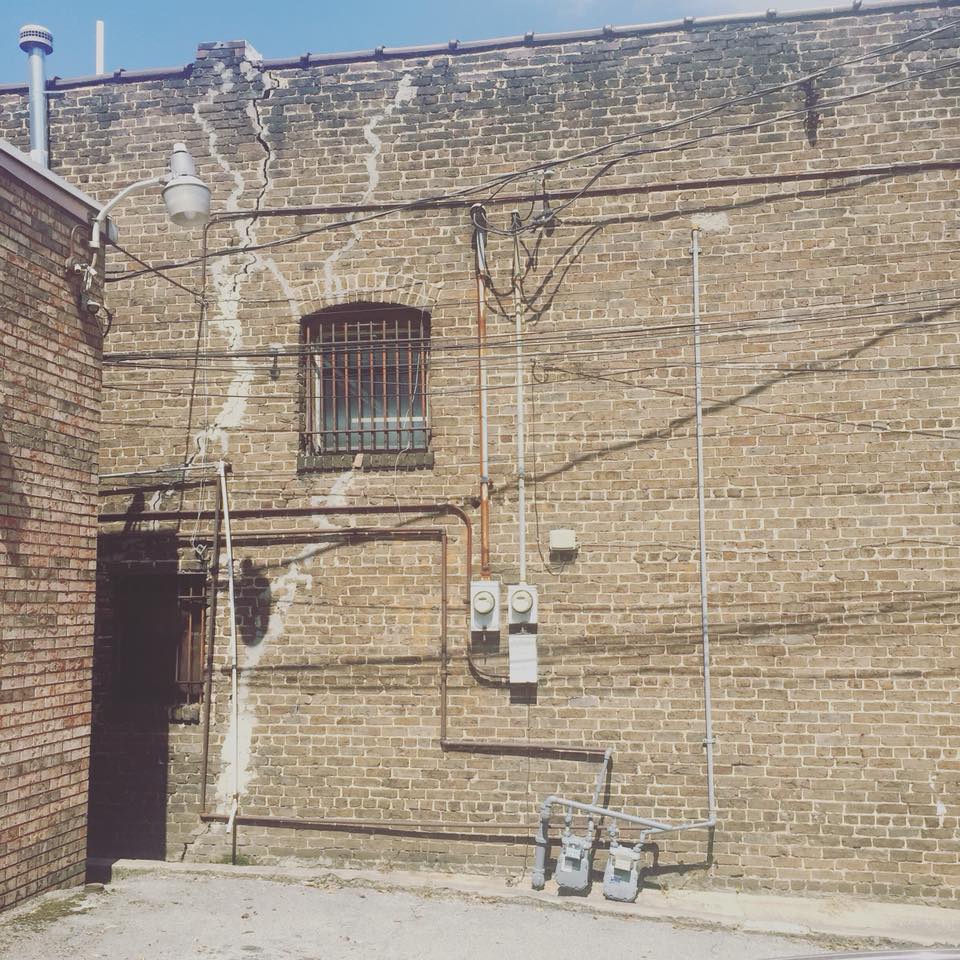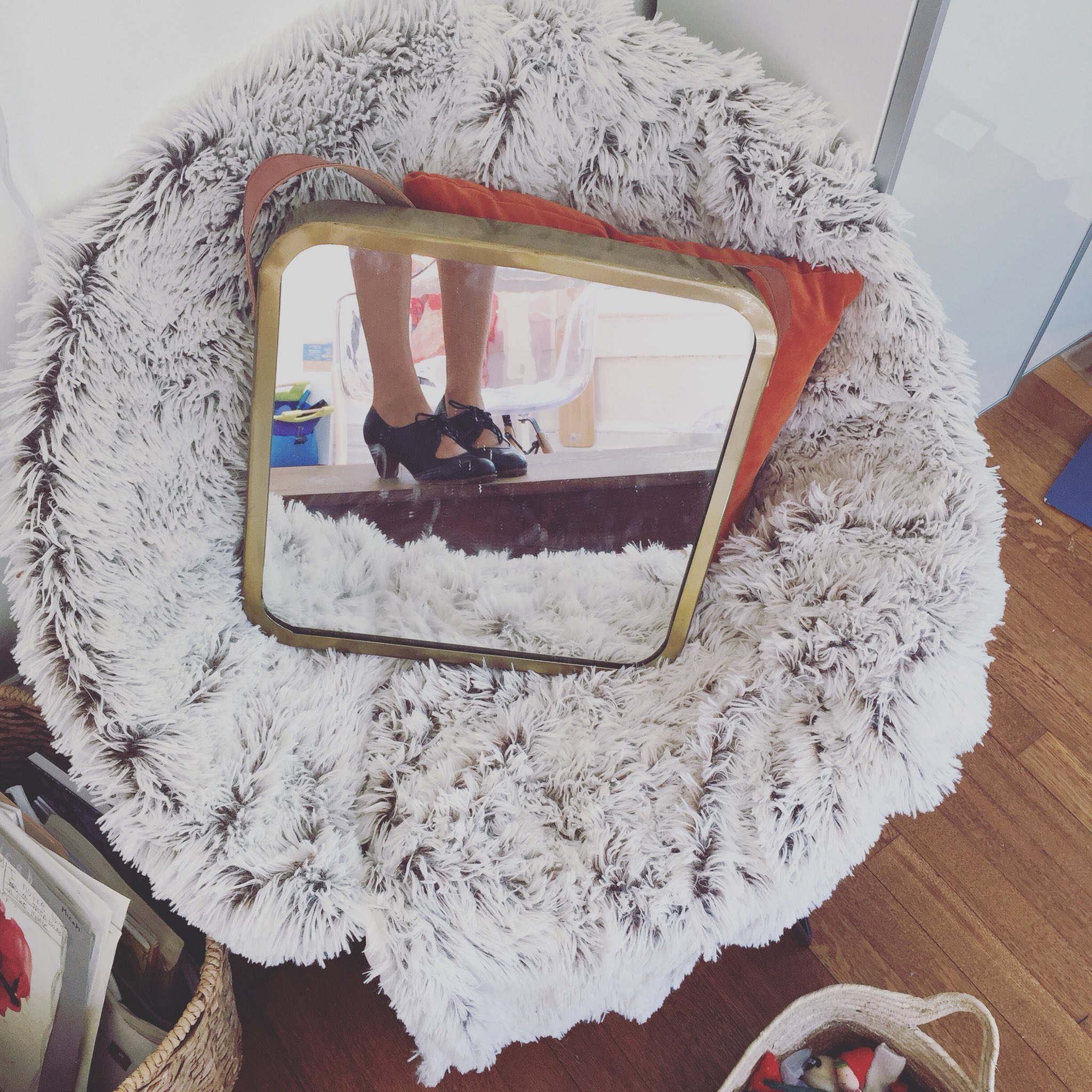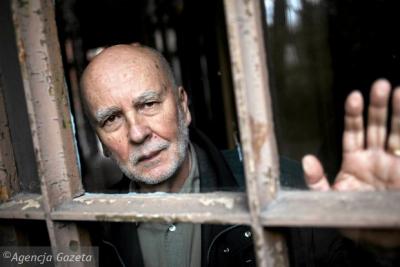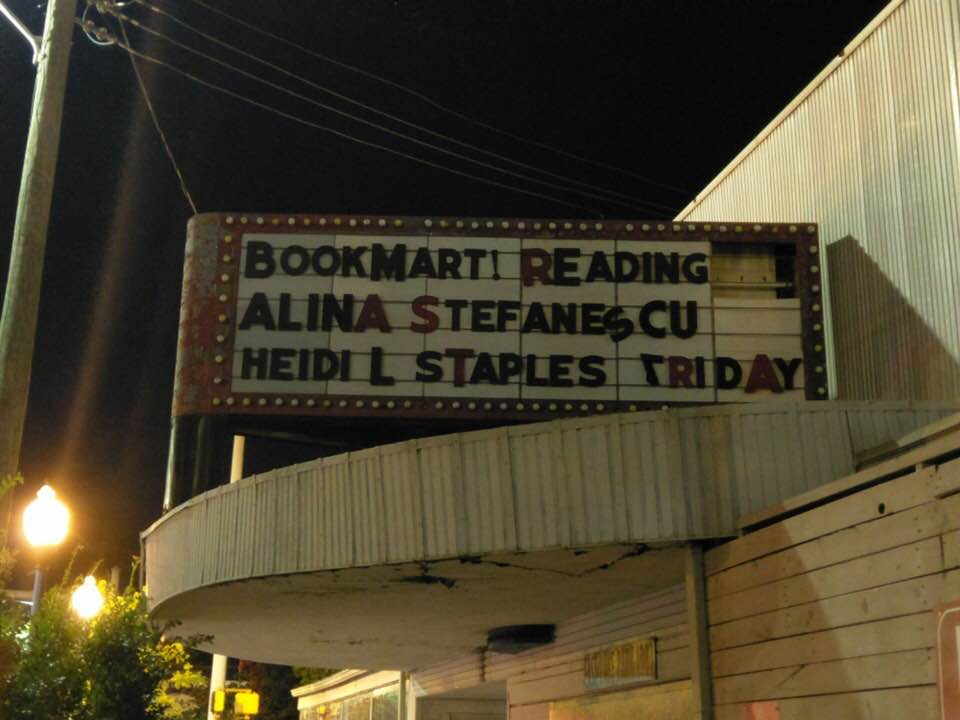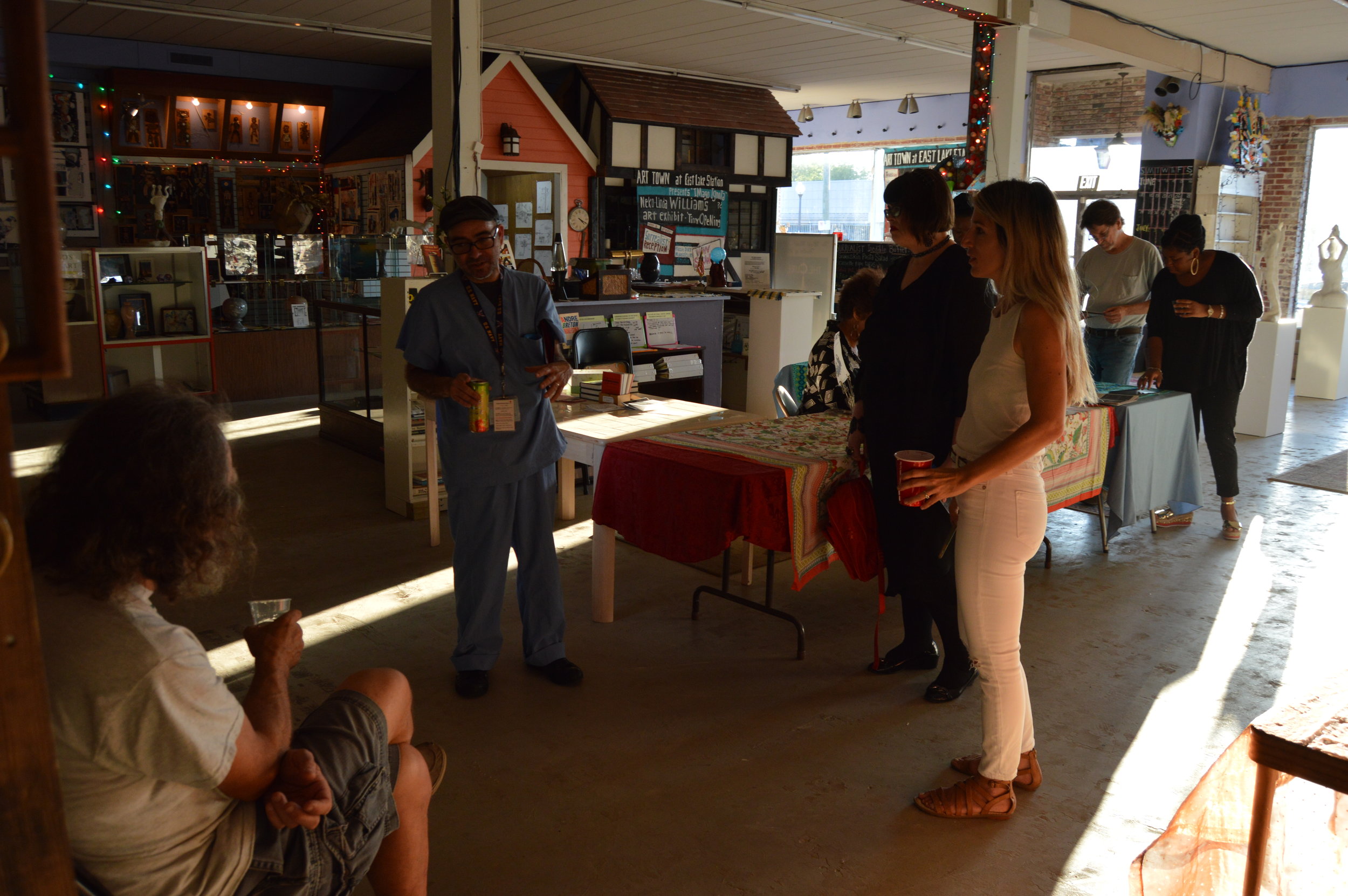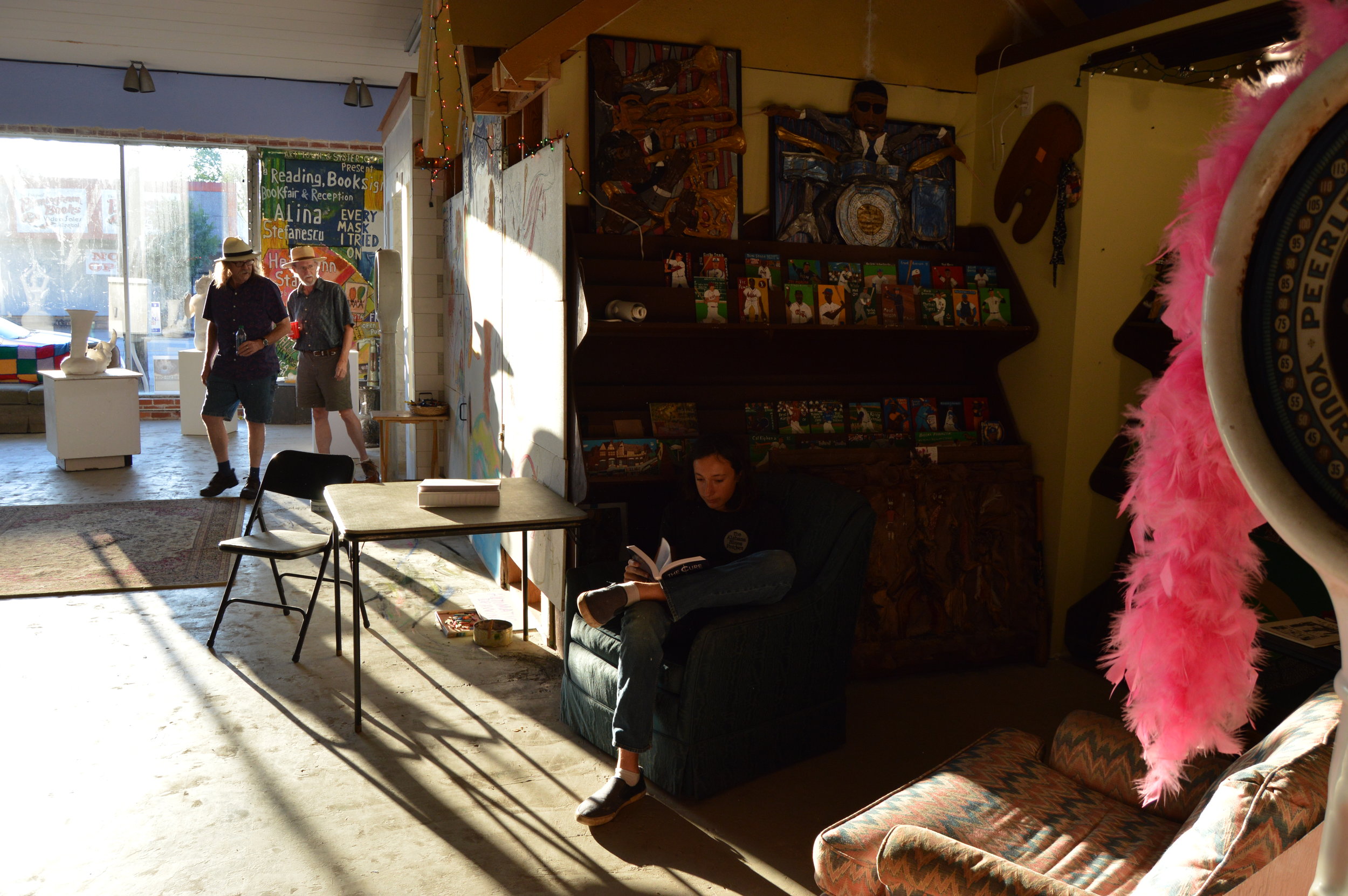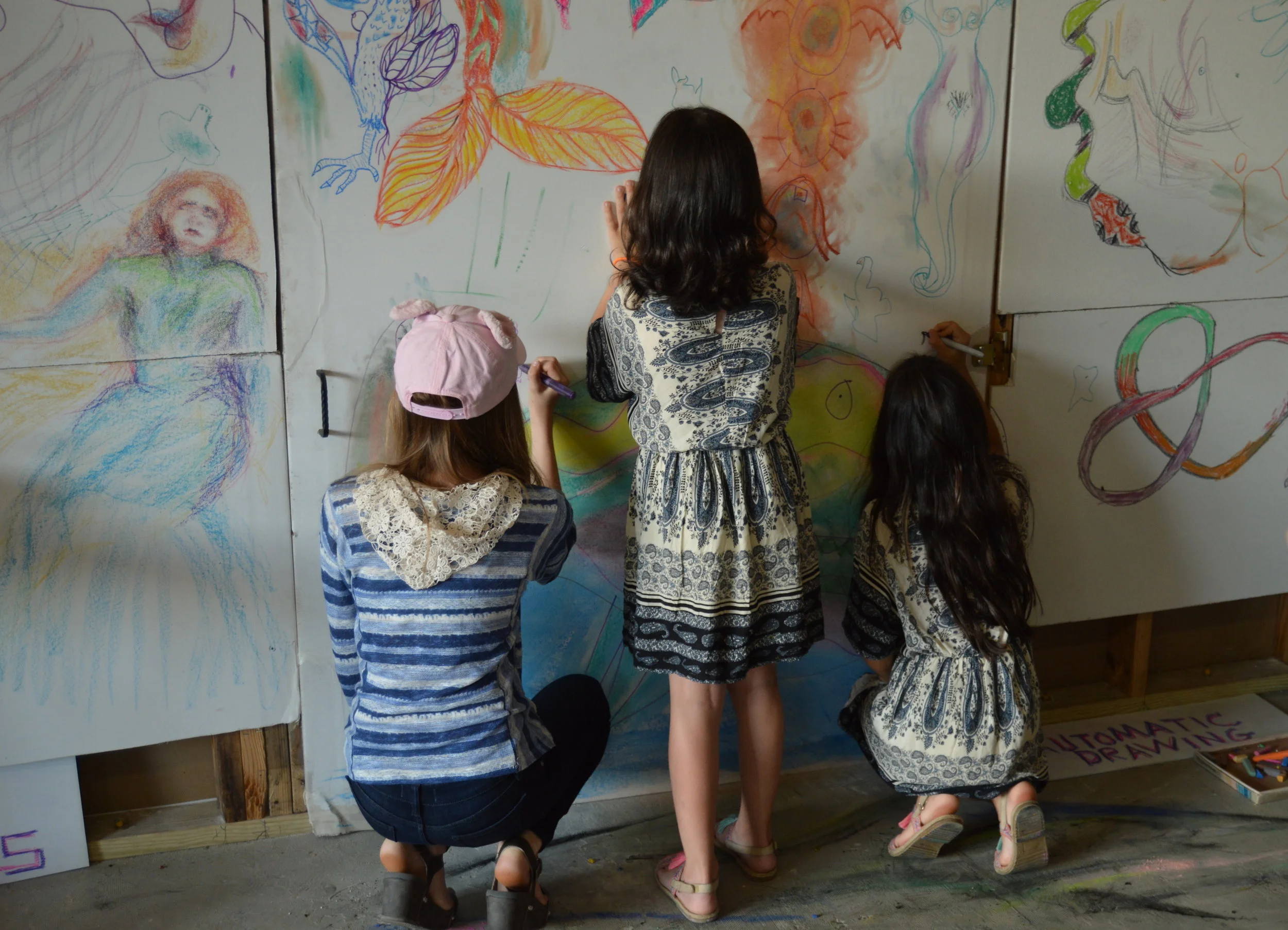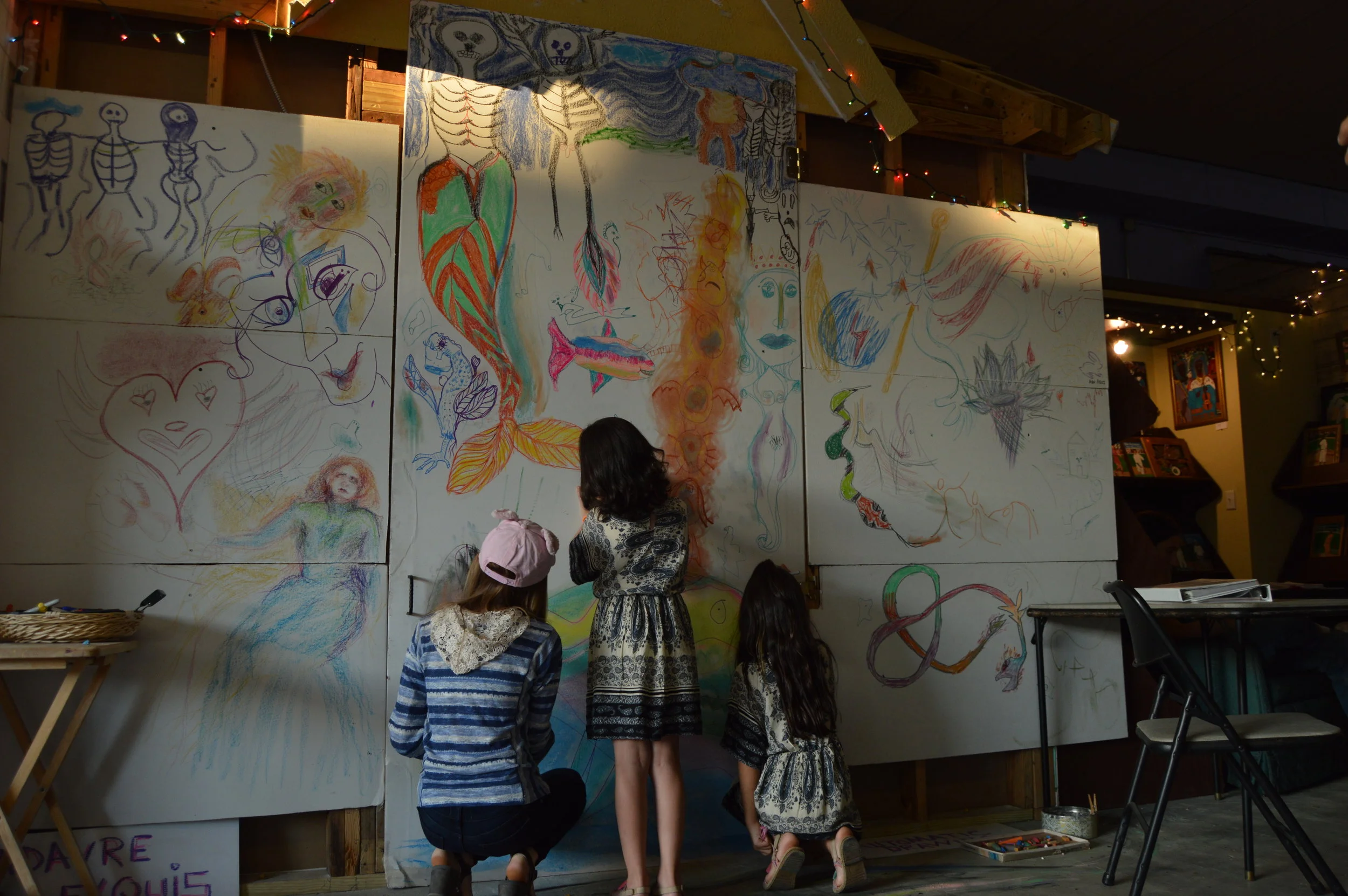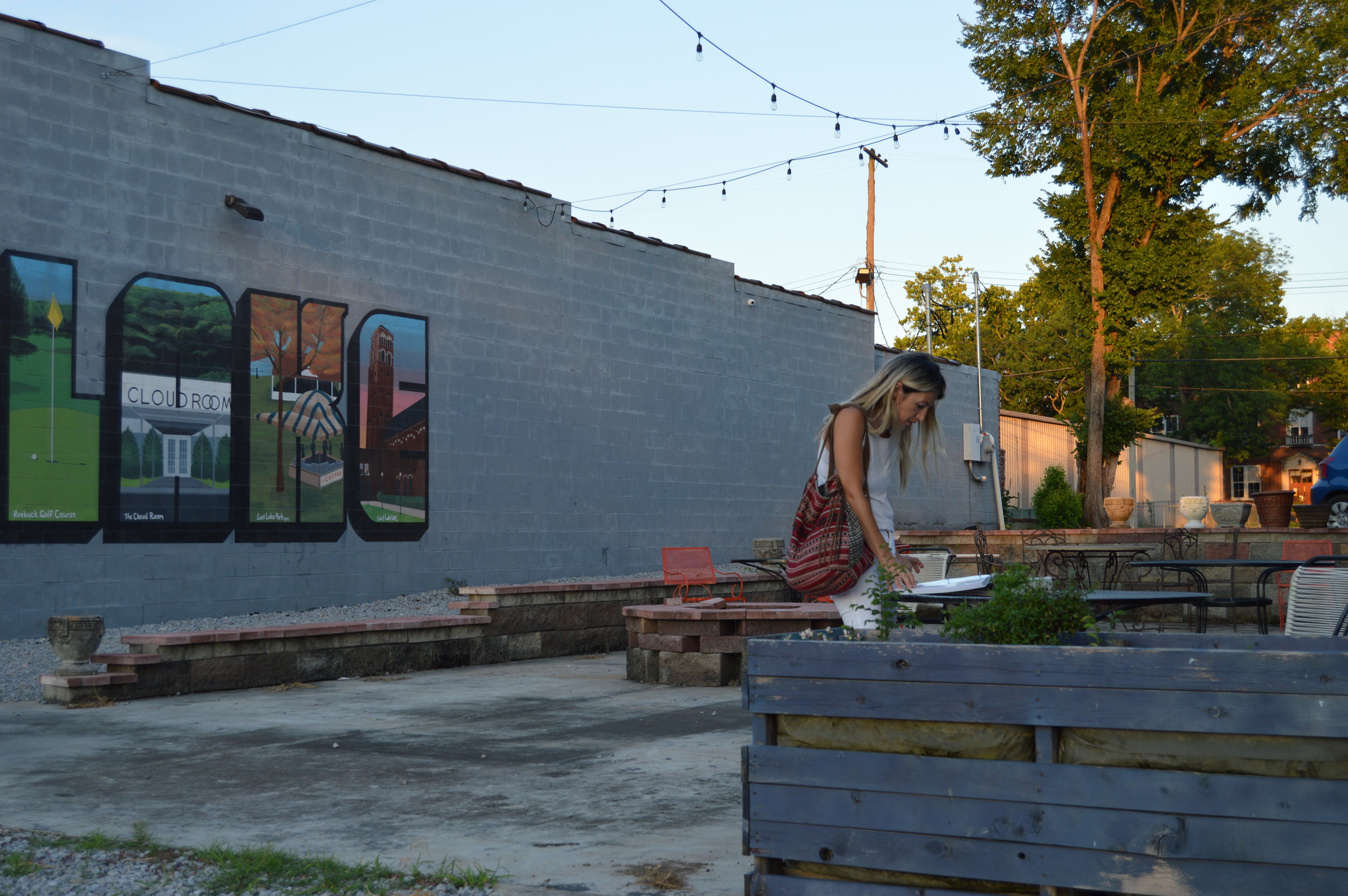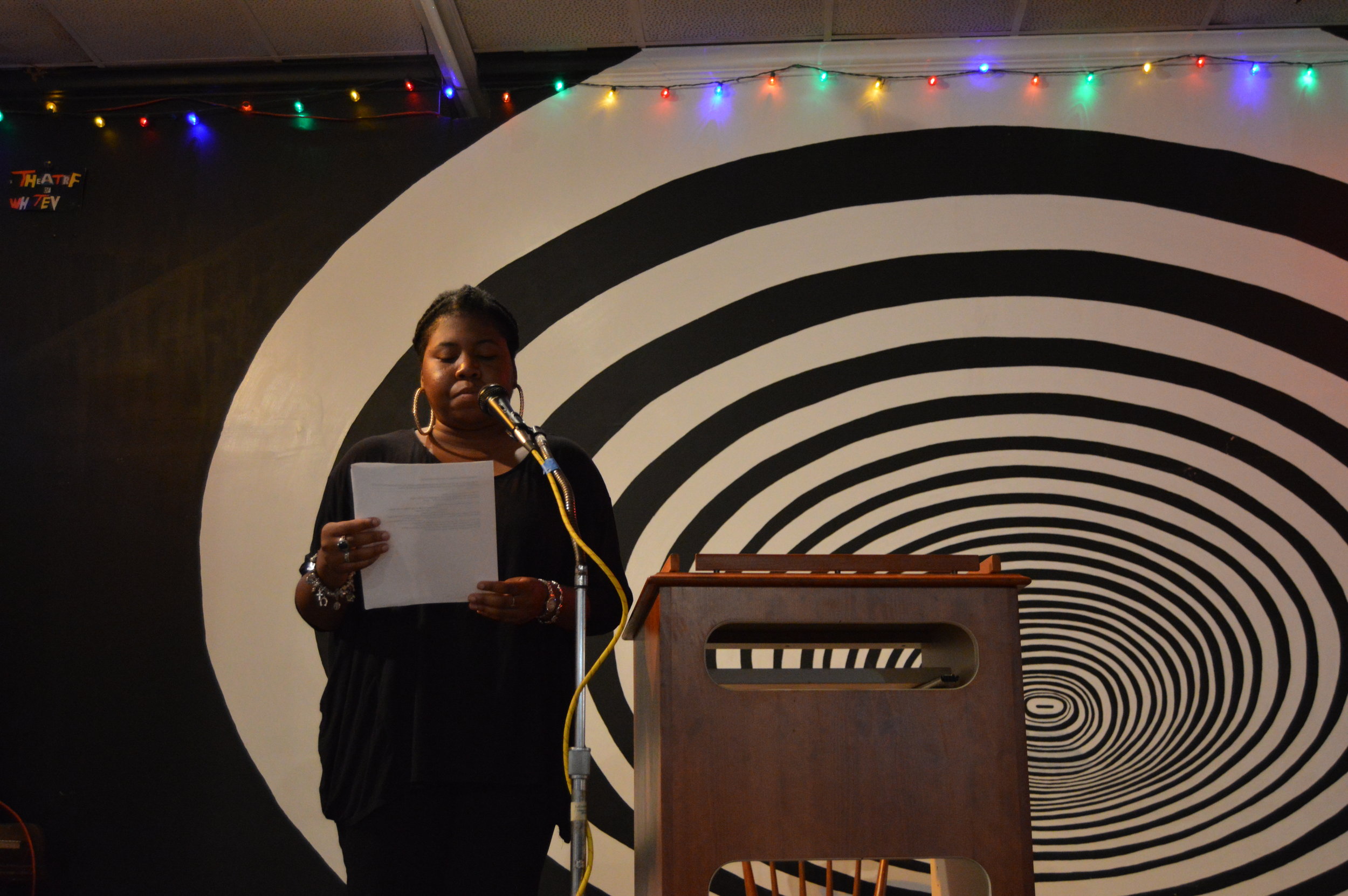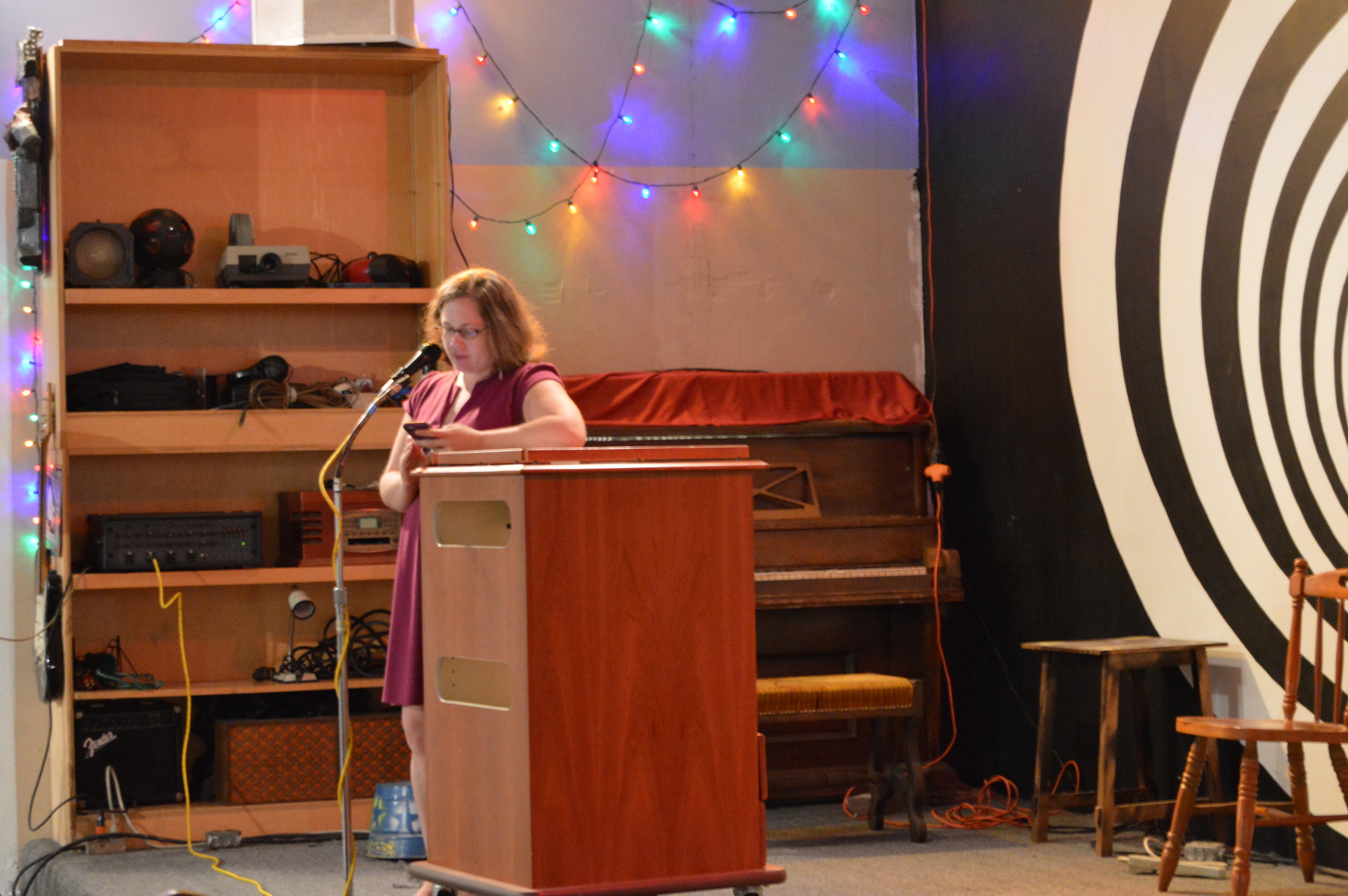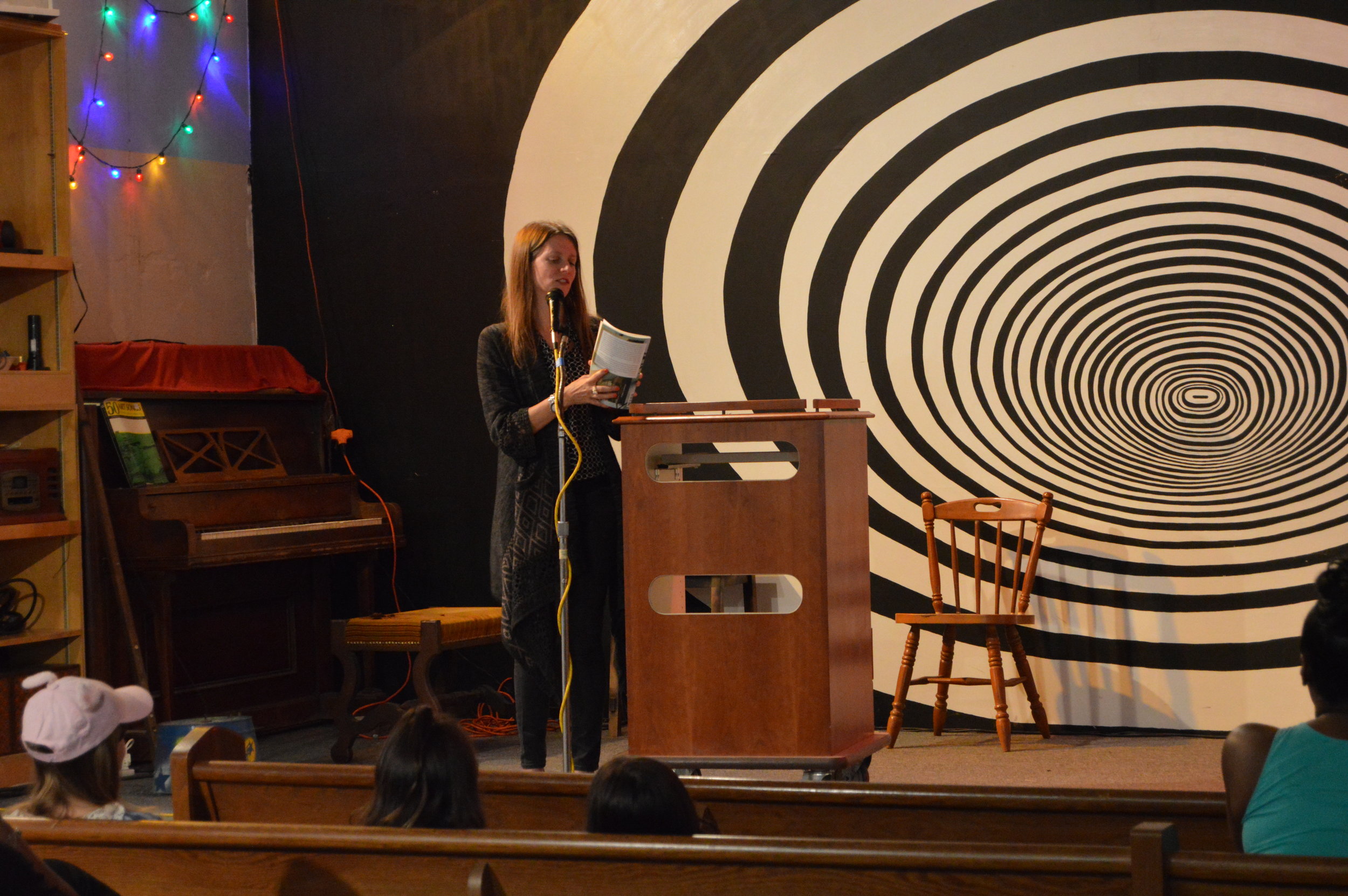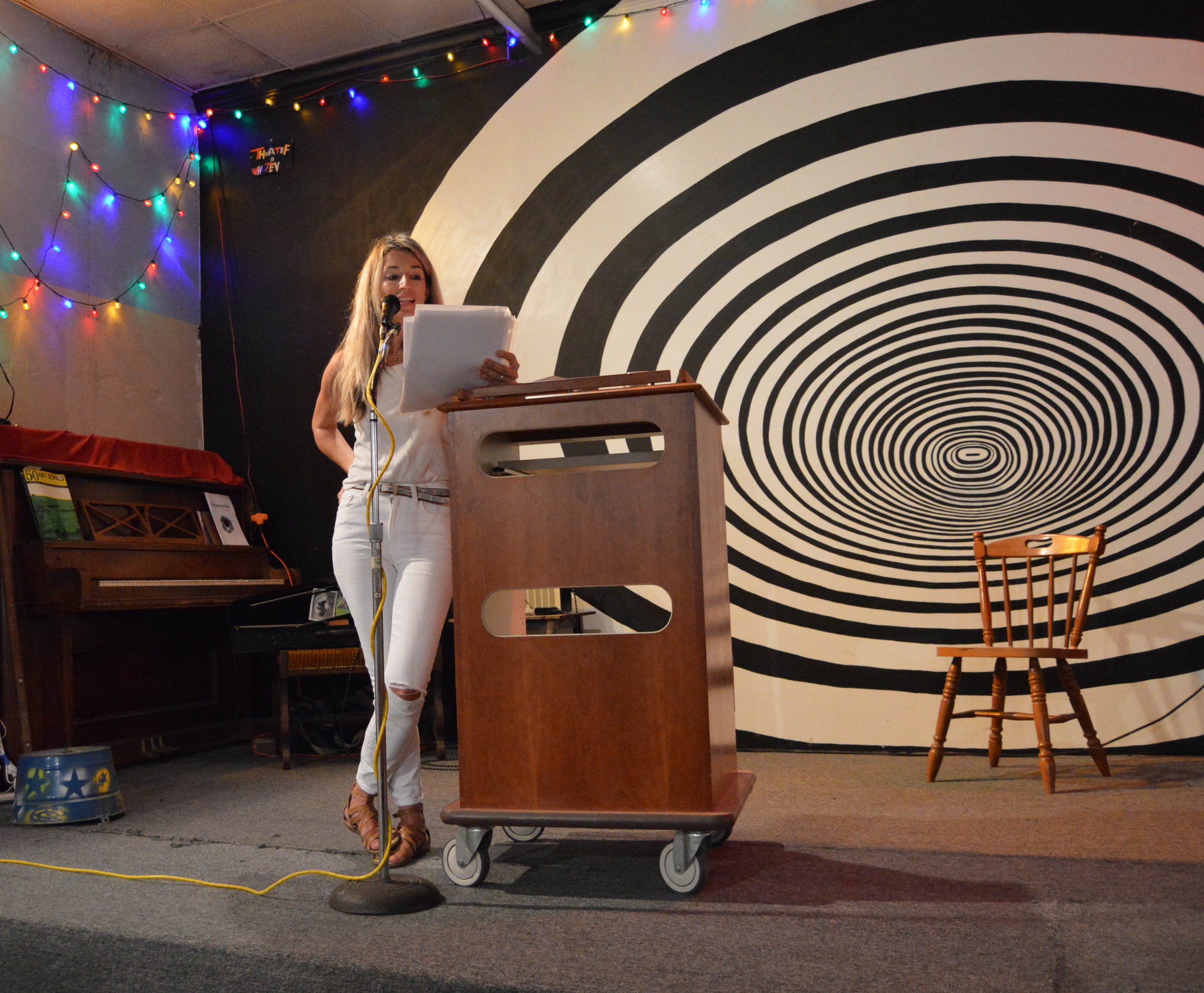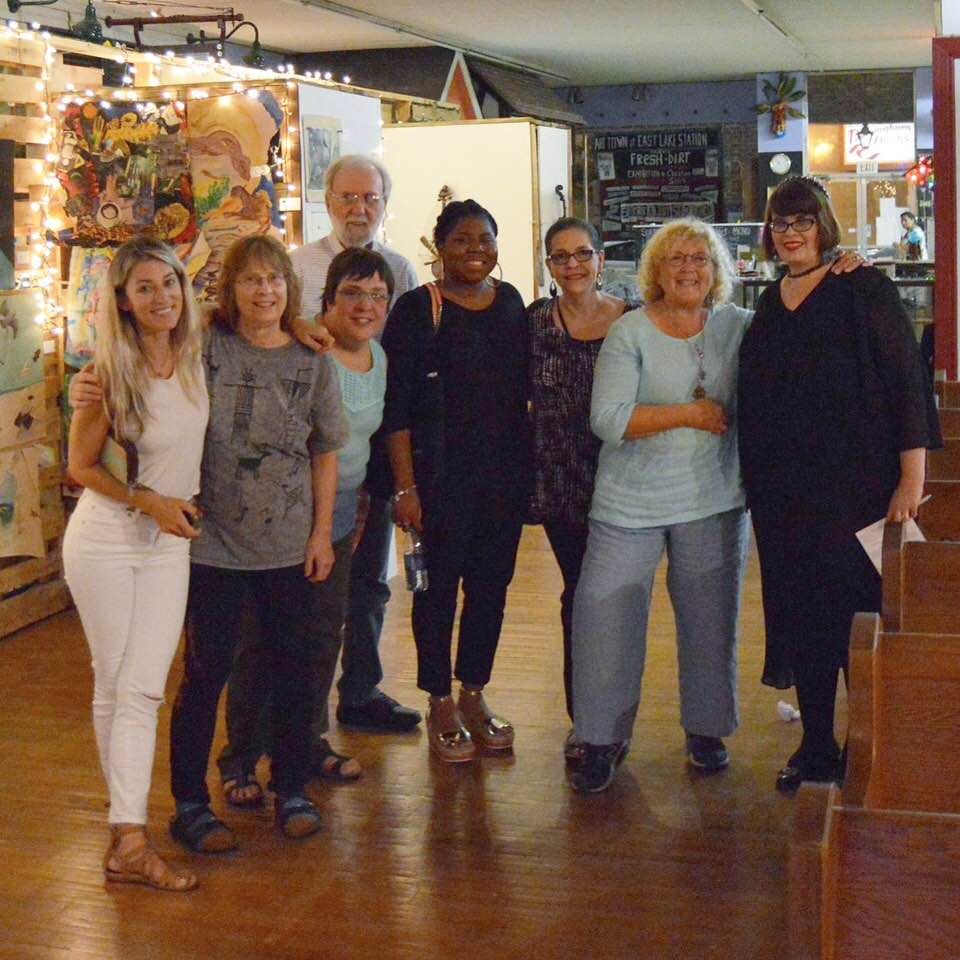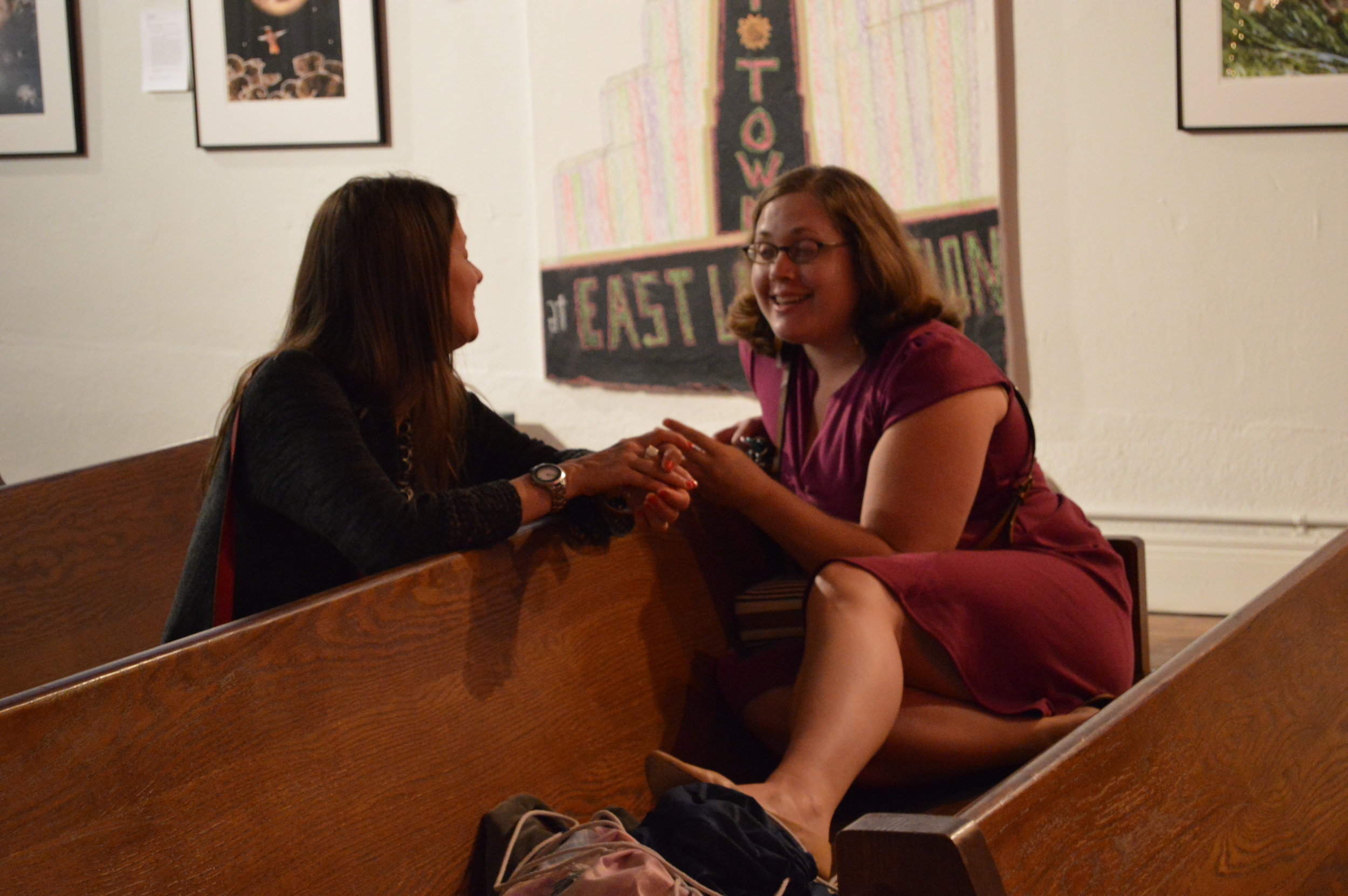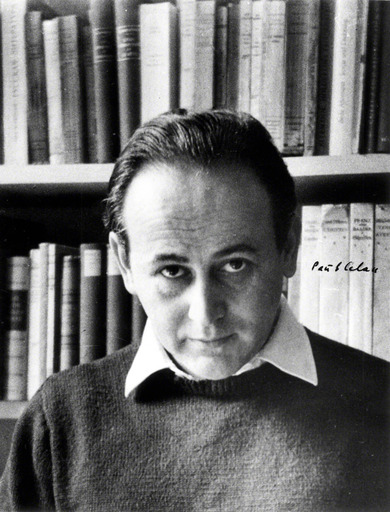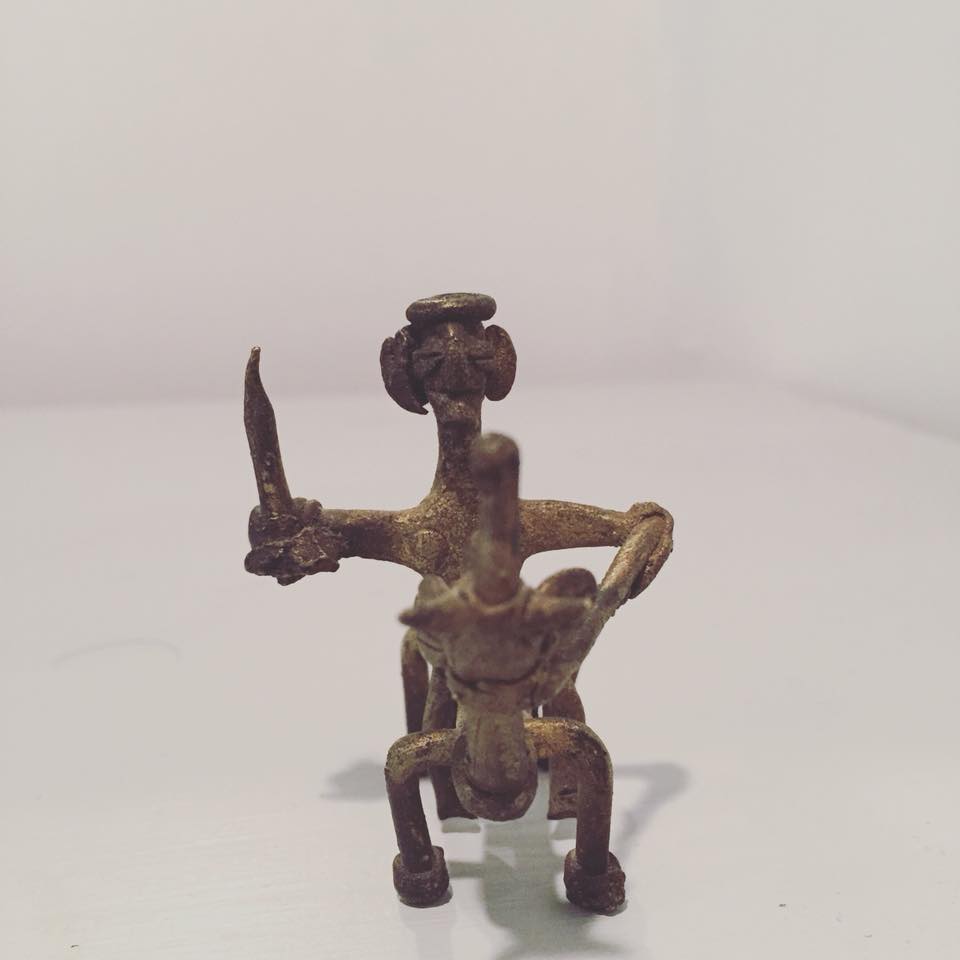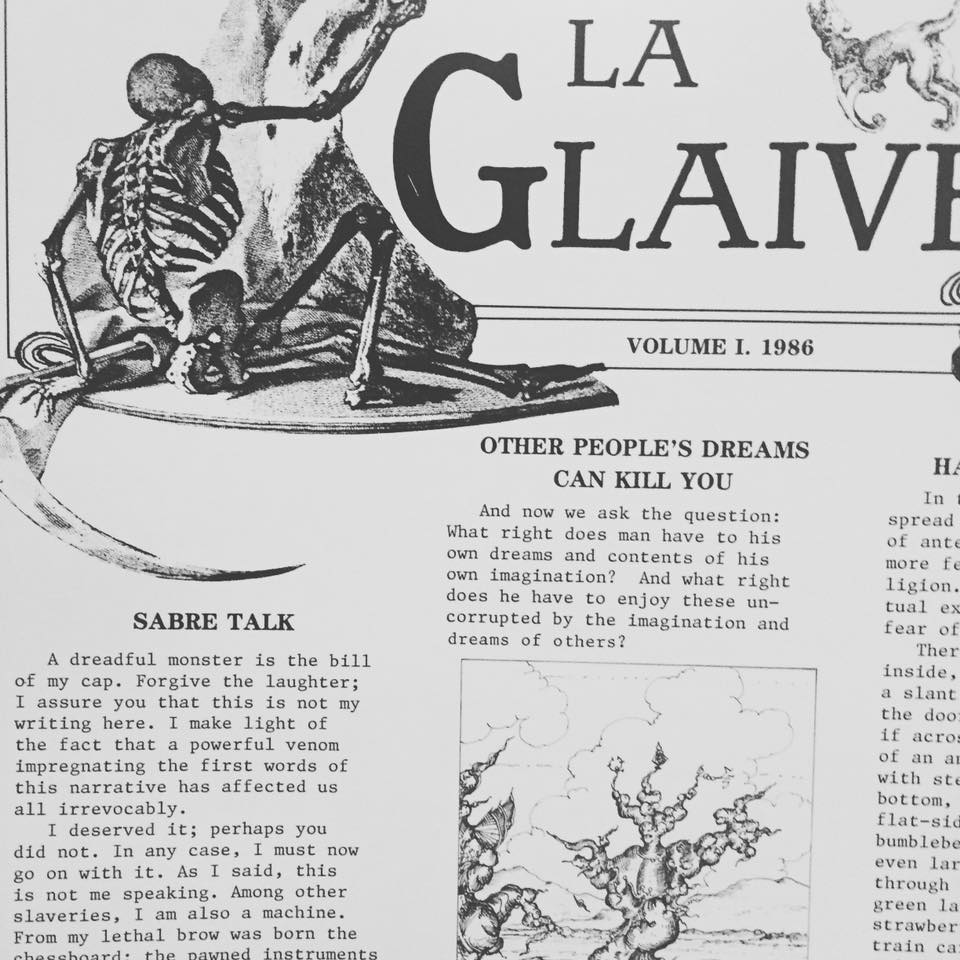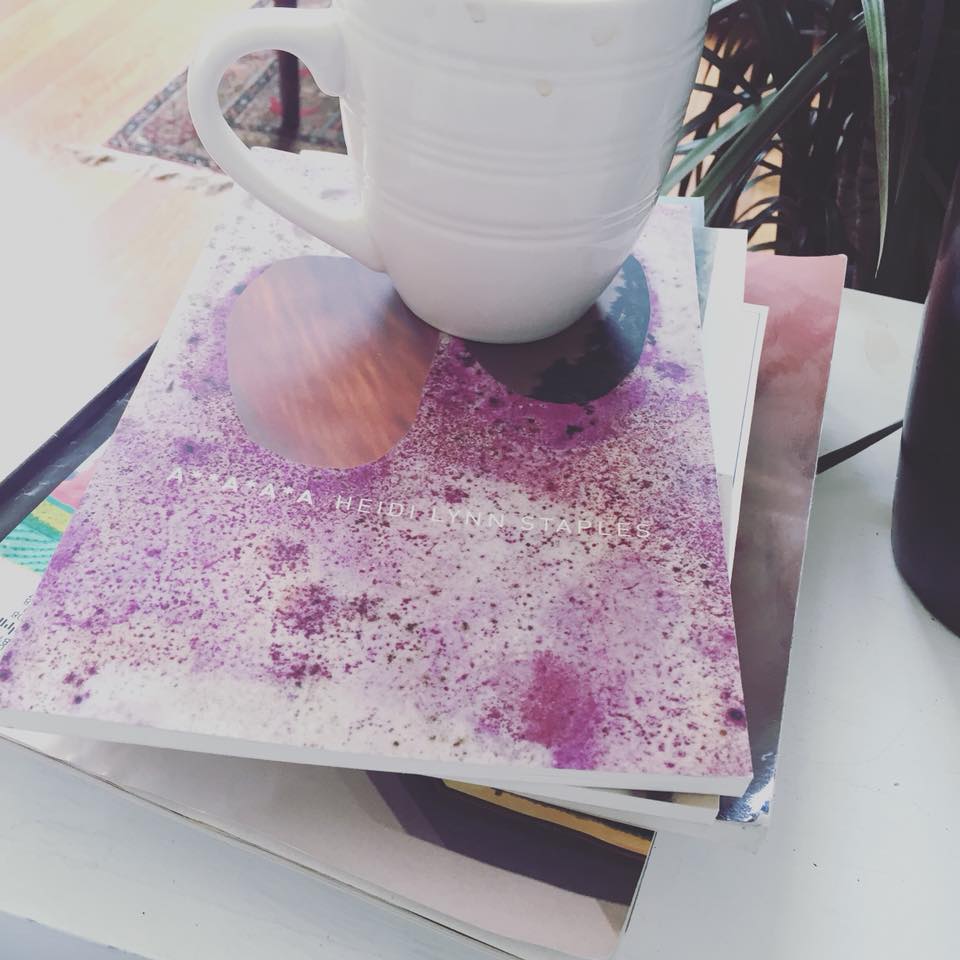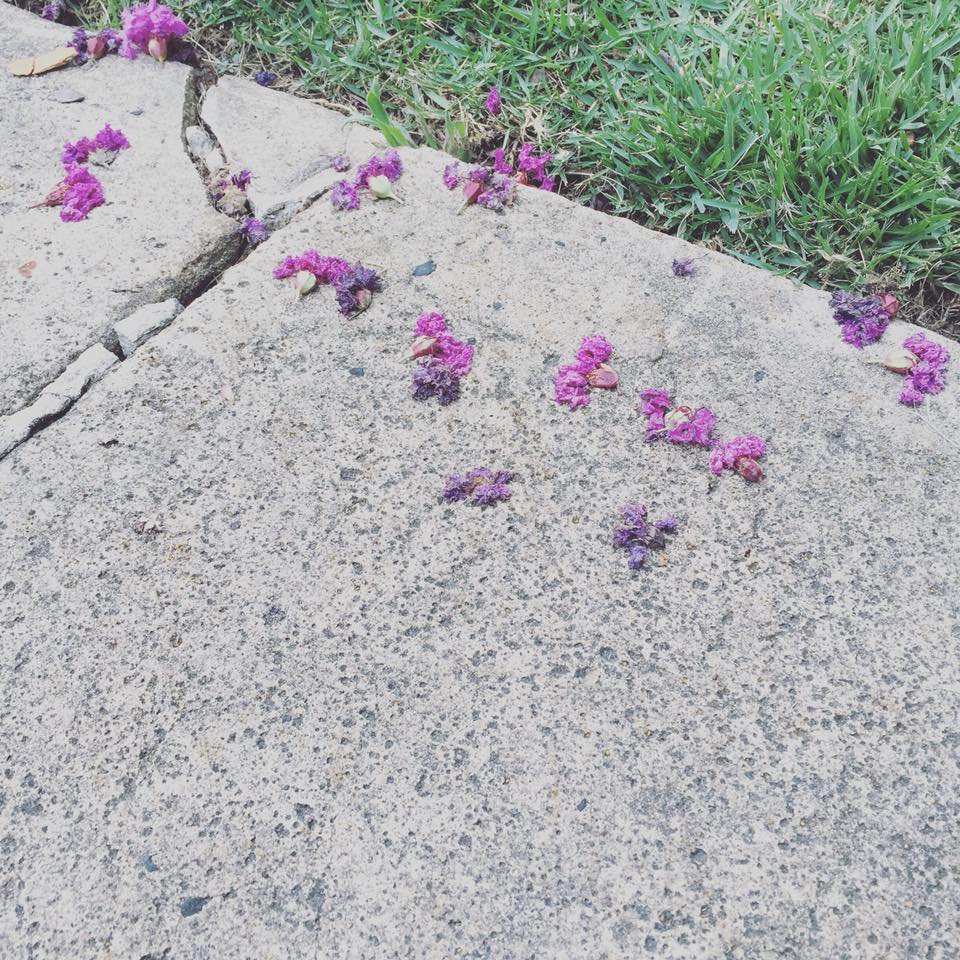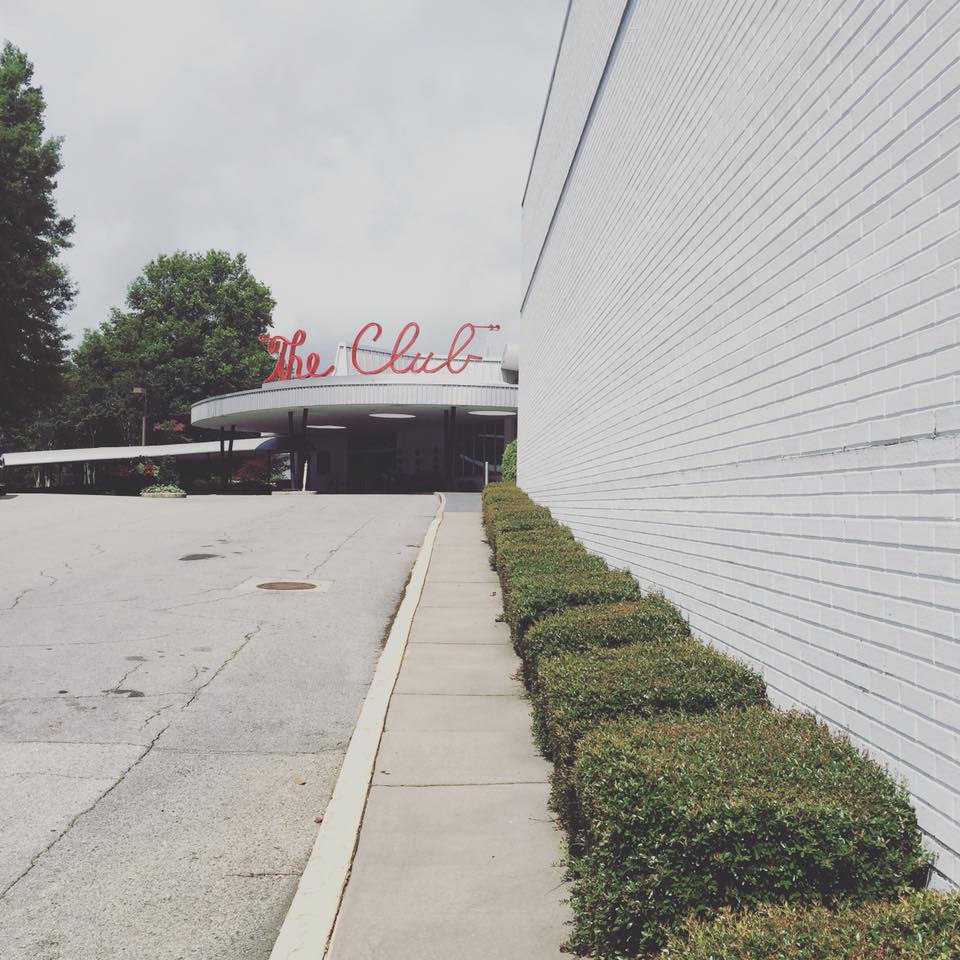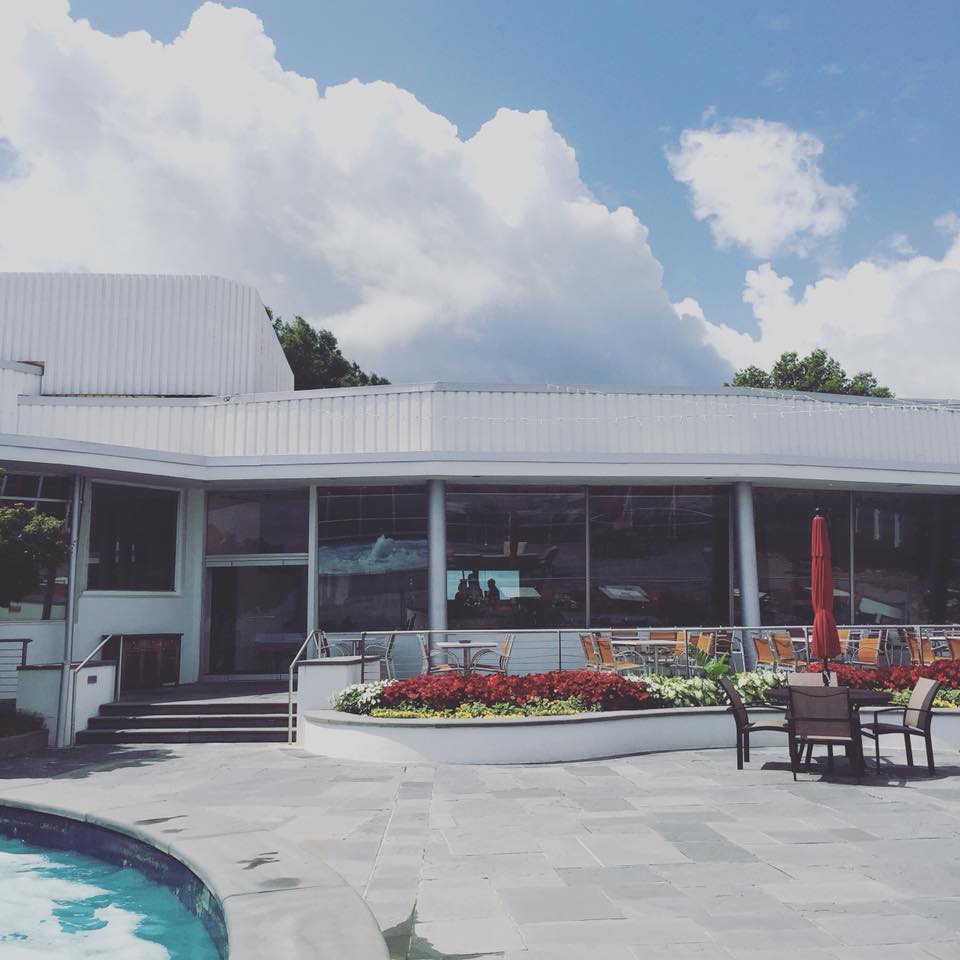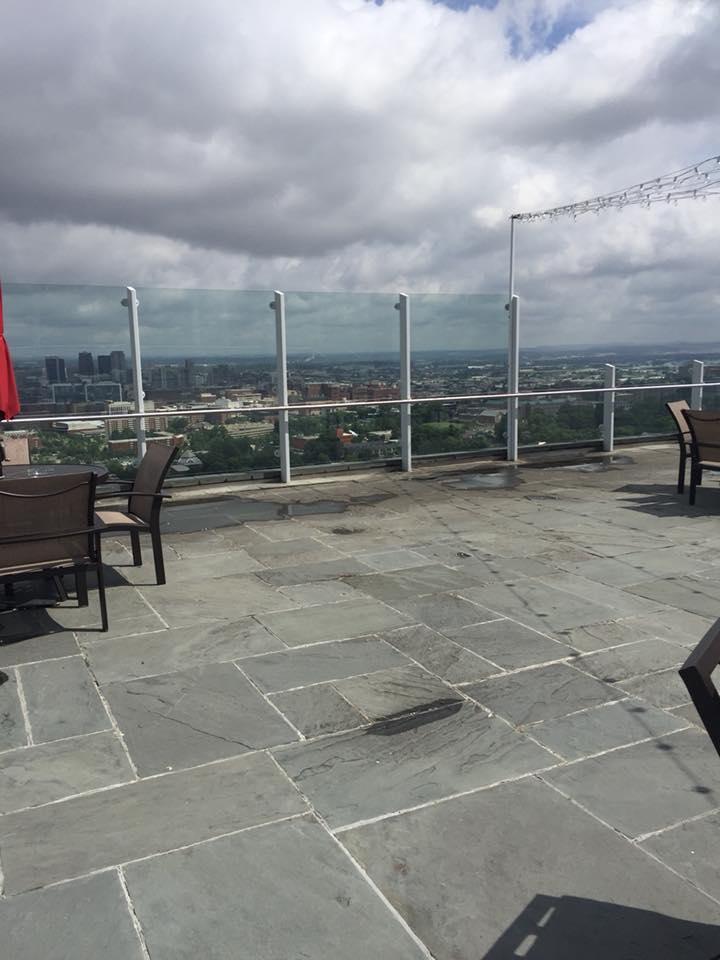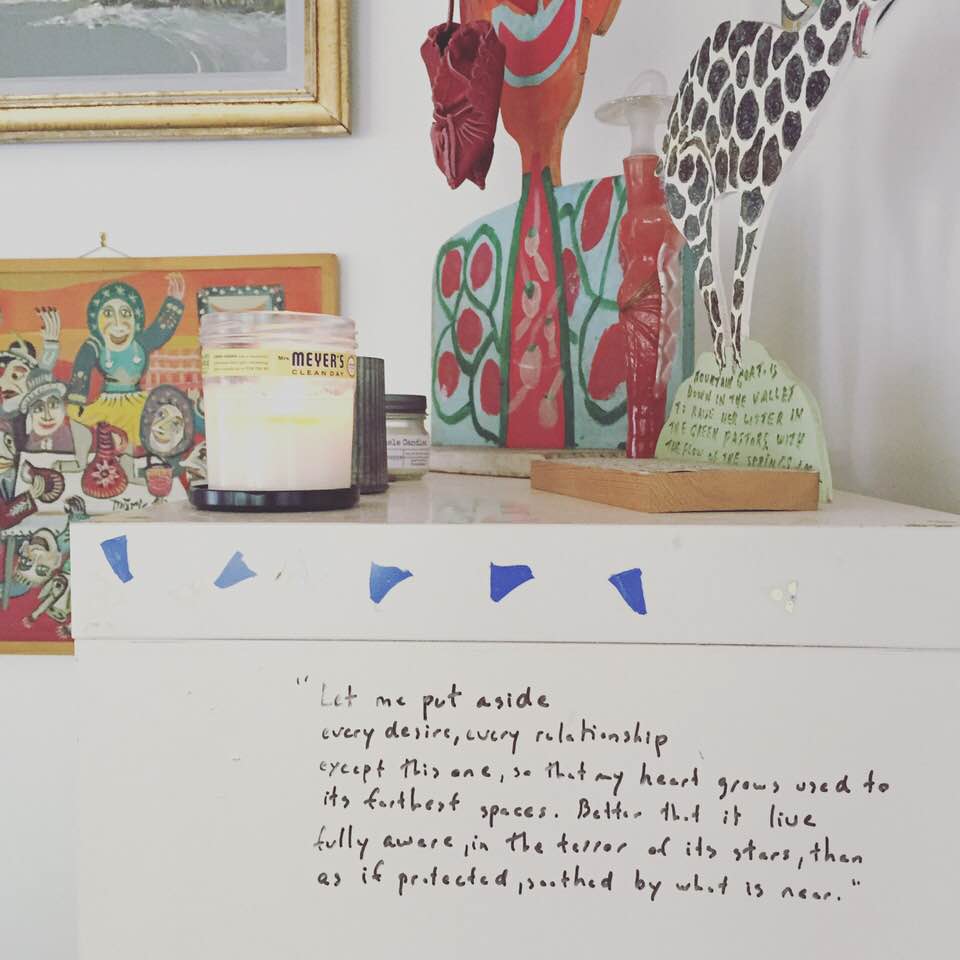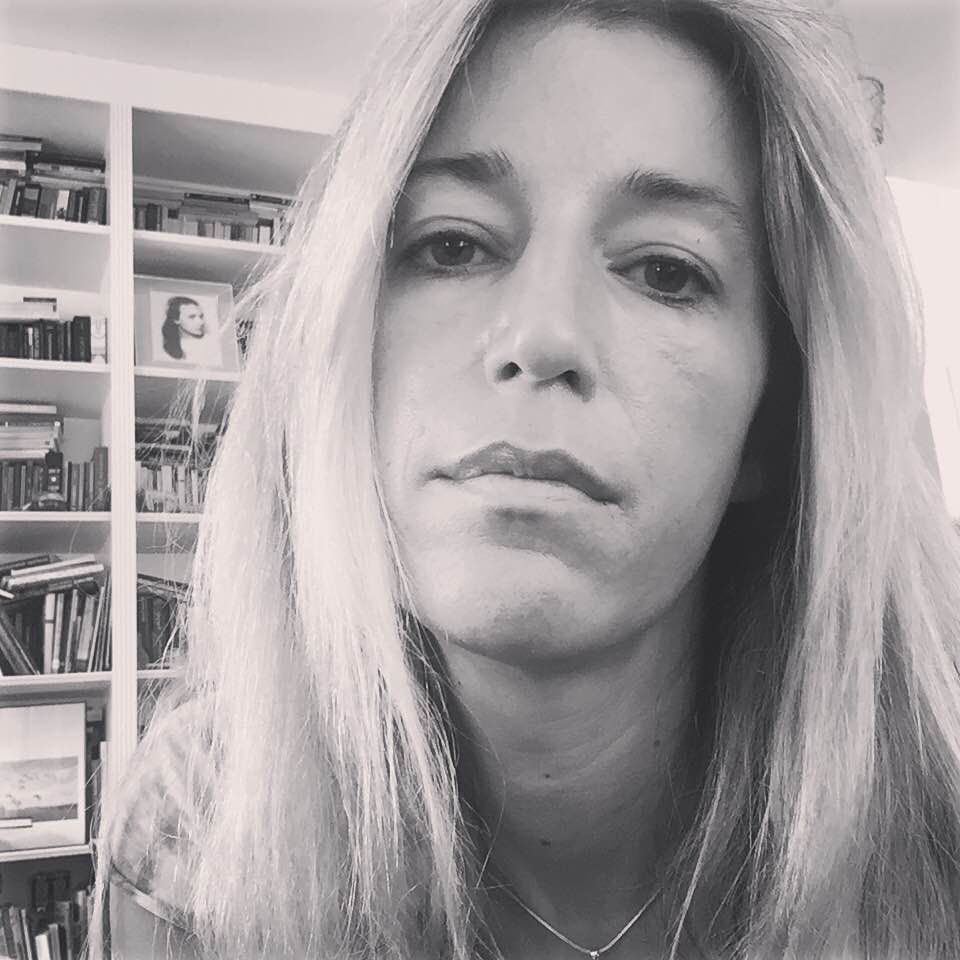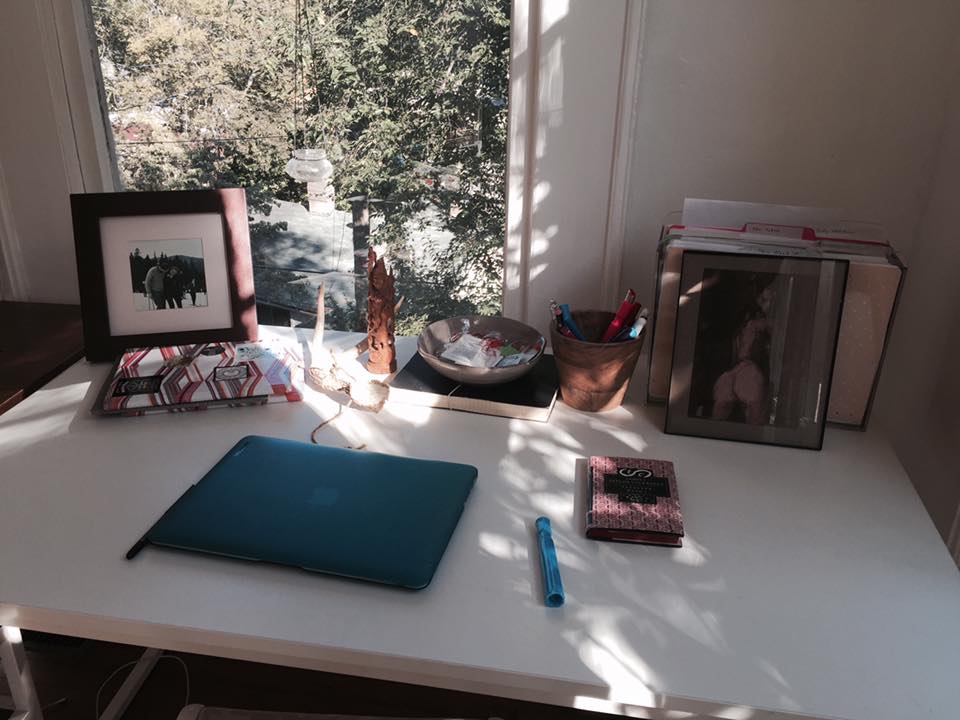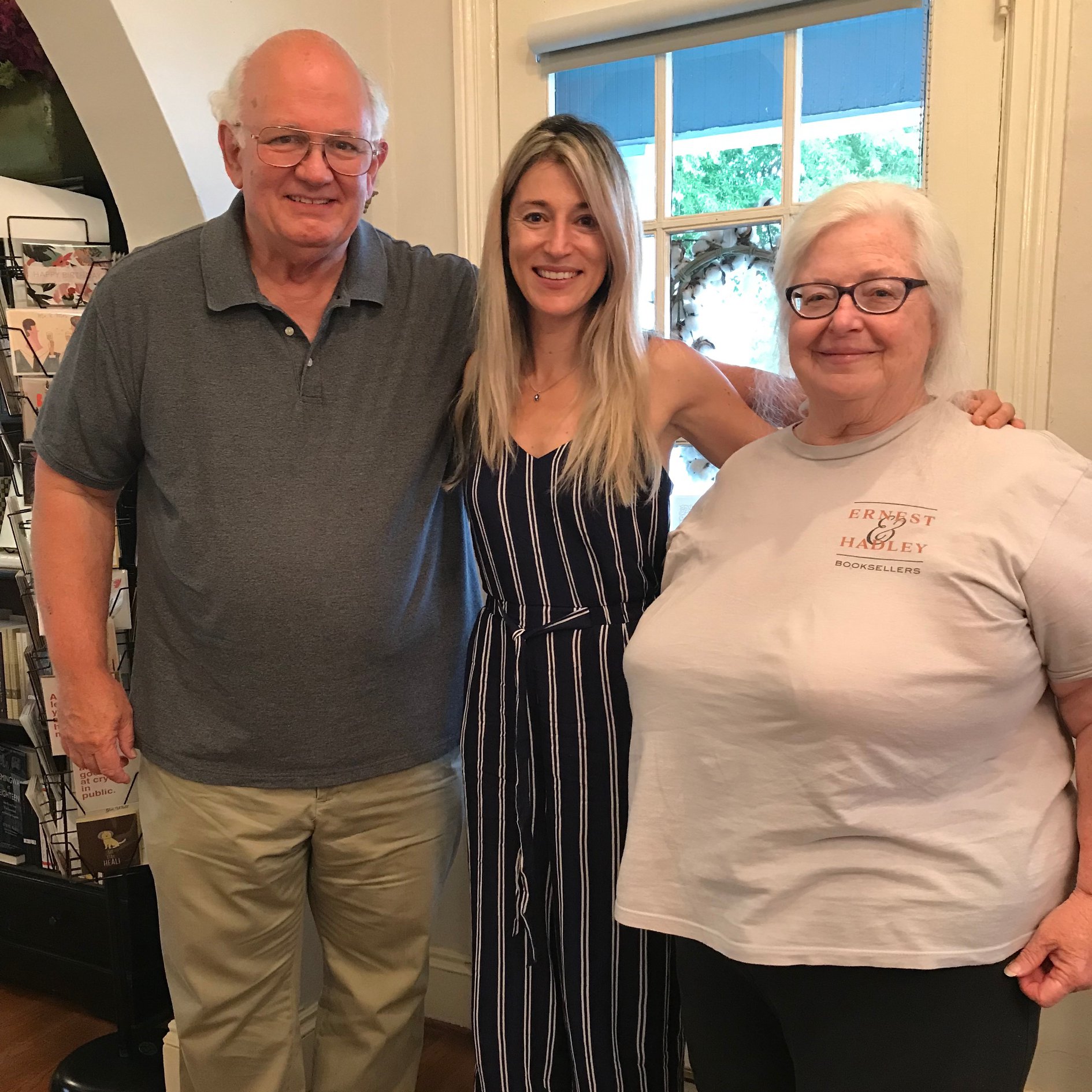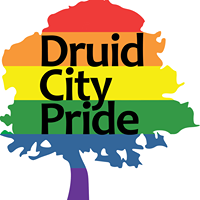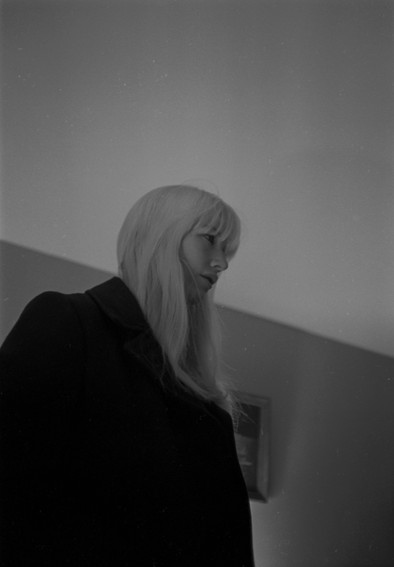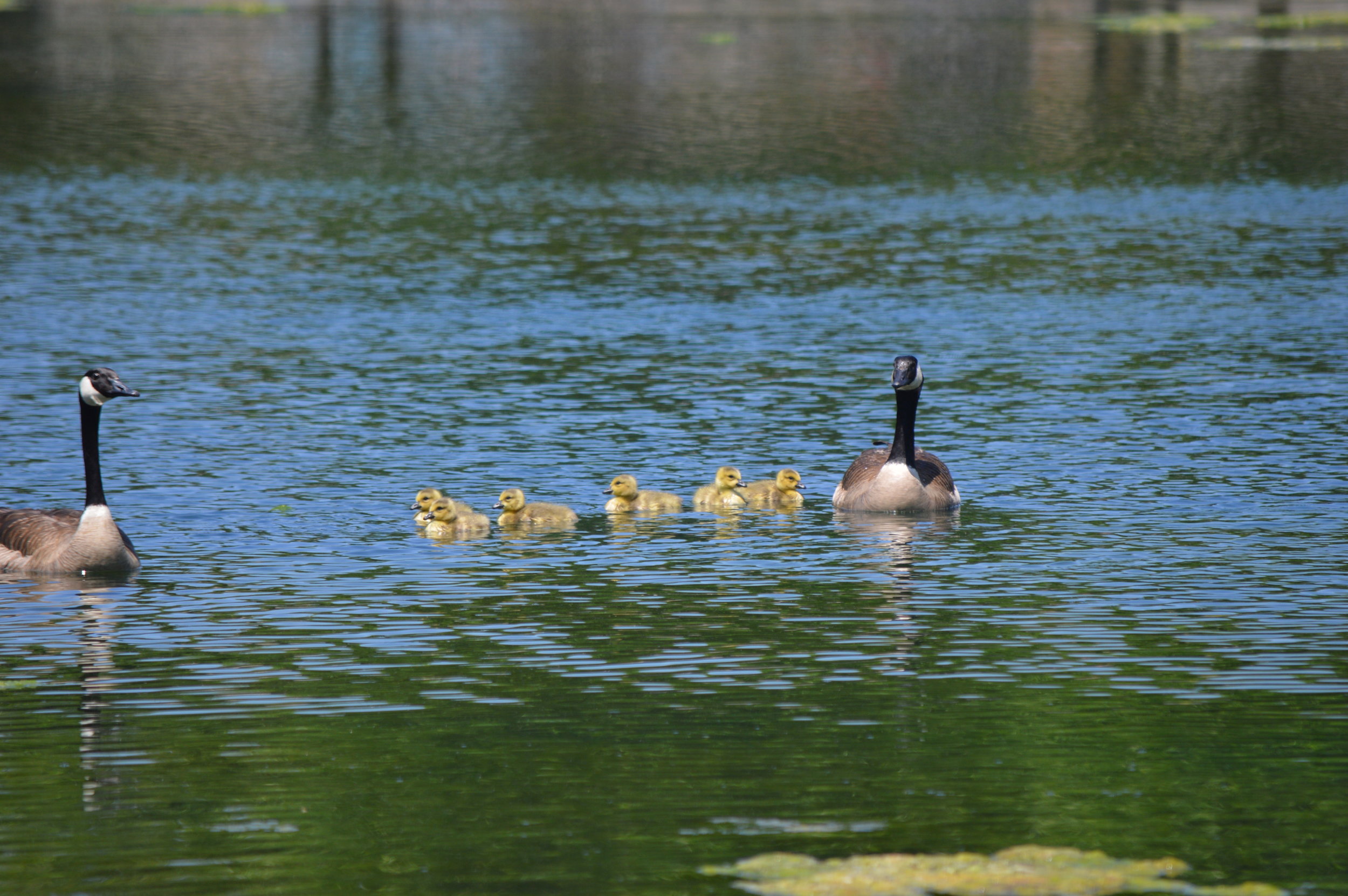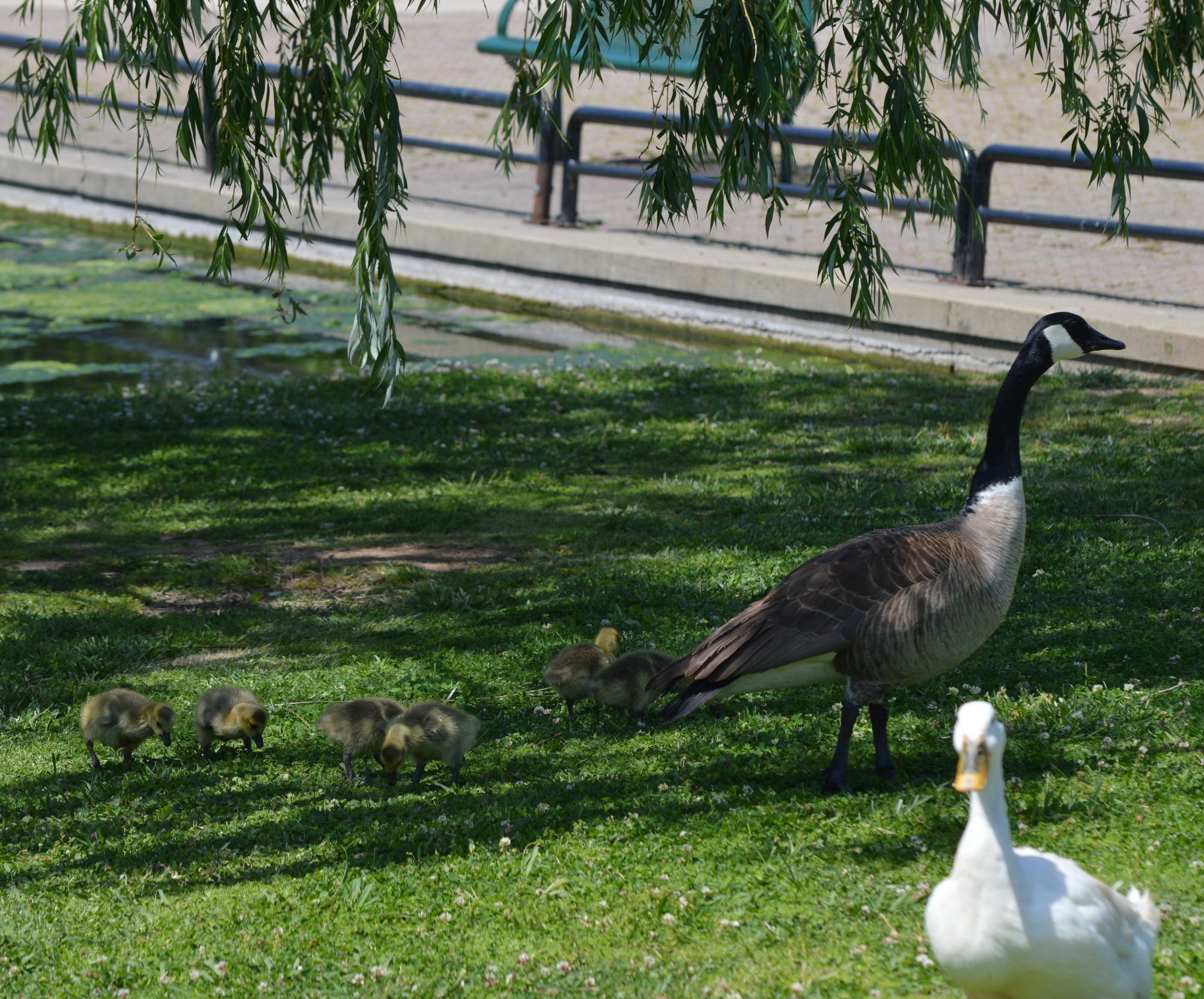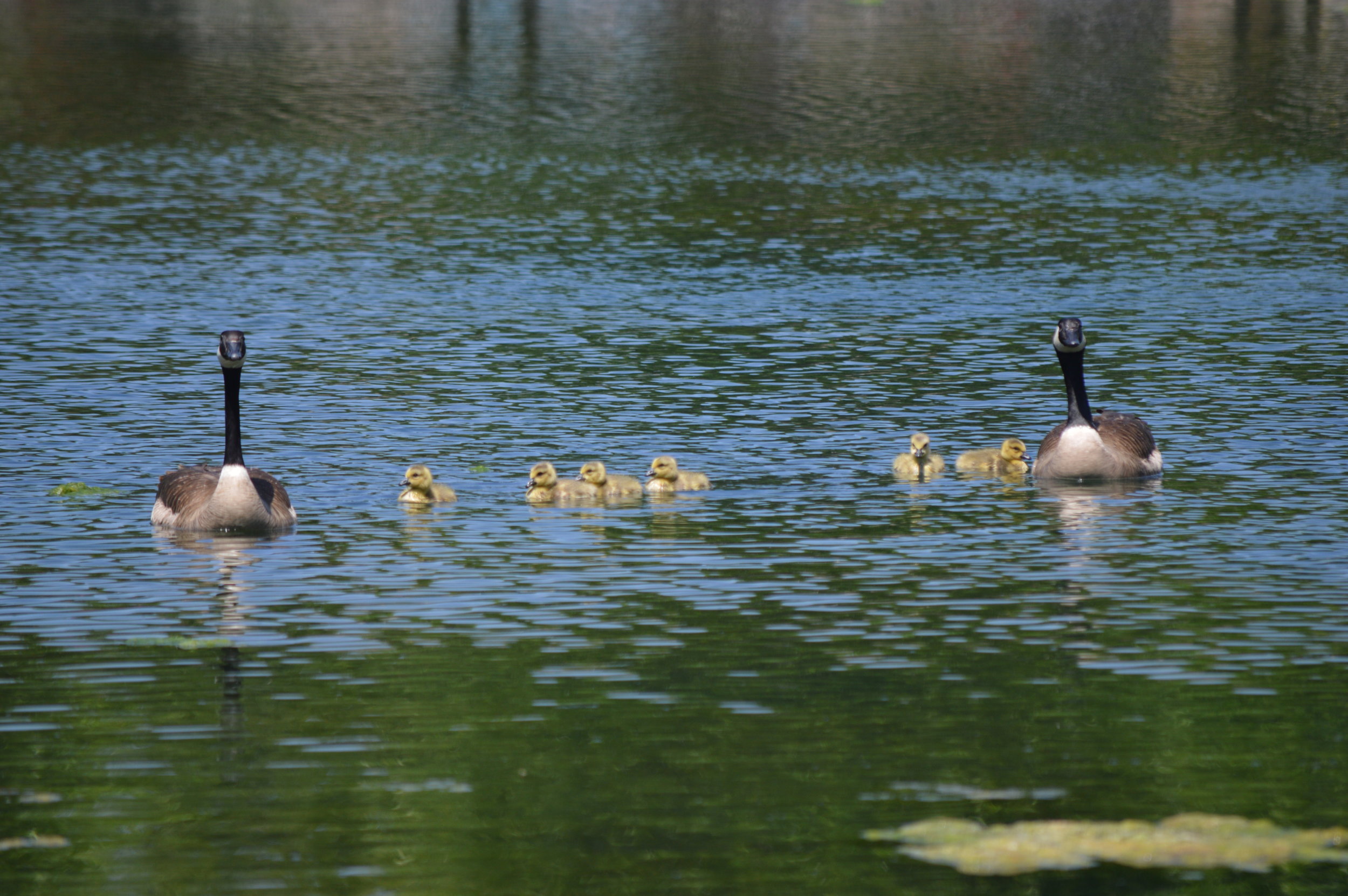Writing what love makes of us demands the courage to abandon cynicism, regret, and self-help-friendly shields. I'm deeply grateful to Mantis for publishing this poem from a series of compositions--and grateful to other journals in which future pieces from this series are forthcoming.
An alternate take on hotels and sex
Kudos to Slate for republishing Geoff Dyer's essay, "Sex and Hotels." I looked forward to re-feeling those first-read frissons when I settled into our tackiest loveseat with Dyer onscreen. Edging into the second paragraph, I was startled to find the shoulders stiffening, the head shaking slowly, the lips tightening for a scrimmage. Frequently the female sitting on her hands to keep from asking the speaker that please-please-answer question, I am also the one who keeps a pen and notebook nearby to extinguish mental brush fires. The scribbler, the wilderness, the riot.
What follows is my dialogue with Dyer's piece across the interim between first read and present.
"A hotel room is horny because it is clean: The sheets are clean, the toilets are clean, everything is clean, and this cleanliness is a flagrant inducement to—what else?—filthiness. Ideally, the room is so clean as to suggest that it has never been used. It cries out to be defiled. If the room is, in a sense, virginal, then the act of breaking the seal on bars of soap and other stealable accessories has something of the quality of breaking its hymen. Slightly archaic it may be, but to speak of “taking a room” is, in this context, pleasingly suggestive."
"In a sense" is like a cotillion skirt in that one can hide a cannon beneath it. Upon examining the metaphorical sense in which a room is "virginal", we are presented with the likelihood of hymen. Considering the hymen-optics wherein cracking the seal on bars of soap and other cheap bathroom accouterments resemble the act of breaking a hymen, it becomes less clear which virginity is being tainted. I don't understand the virgin metaphor unless the hotel room is a born-again virgin of the megachurch type, in which case I don't understand what business the fetishization of mega-churchings has to do with the illicit, furtive sex we seek in hotels.
The immaculate cleanness of the hotel room isn’t alluring for its virginal connotation (especially since sex with virgins tends to be the least erotic and satisfying variant) so much as the blatant knowledge that I played no part in the work of spotlessness. I didn’t have to clean it and I won’t be responsible for any wine stains or disasters thereafter. Unlike sex with a virgin, the mess may be mine but the responsibility is on the house.
(Note: Dyer mentions this in passing but glosses over it as a form of luxury akin to having someone turn the sheets. The fact that I can't mention it in passing suggests a difference, perhaps, in the way Dyer and I experience daily household life. That difference is a minefield of untouched sex bombs.)
Maybe a hotel room is “horny” because it asks nothing of me except imagination tangled with banality, the perfect Moravian moment. And maybe a hotel room is thrilling because it’s secretly filthy; ultraviolet light would reveal splatters of sperm and bloodstains, a woman screaming while biting a hand, all the ways in which patriarchy follows us into the private spaces. This is the undertone of actual. Stanislaw Lem’s story floats through my head like a love letter I won’t share with my partner. My head is always a little dirtier than his, always more fascinated by the grime beneath the shiny American smiles.
"In international hotels, however, the passage through the lobby—a process of which checking in is the ritualistic expression—is also a passage from place to non-place. By checking in and handing over your credit card or passport, you effectively surrender your identity. By becoming a temporary resident of this non-place you become a non-person and are granted an ethical equivalent of diplomatic immunity. You become morally weightless."
Humbug. A hotel lobby is sexy not for its “moral weightlessness” but for its reckless, bureaucratized complicity in the exchange of transactional sex.
There I am, waiting in the brutal splendor of a hotel lobby where personal emptiness is magnified and reflected back from every gleaming surface-- I am breathlessly lonely, horribly aware, compressed by the emptiness spun into the architecture, the codified professional displays, the silent confession that all bodies in this lobby are missing something that going upstairs will not relieve. All the stairwell sex in the world will not unlonely us as we stand in the hotel lobby. When else is our weakness ever this stark?
"In the confines of the hotel you are no longer Mr. or Ms. Whoever, you are simply the occupant of a room. You have no history."
It’s not the relinquishment of identity that feels liberating—it’s the permission to fully inhabit the multiple, ever-mutating selfhood. To be Mrs. Someone and Mrs. None simultaneously. To be authentically doubled and dislodged from the strictures of rigid social roles.
Is there anything more volatile than a married mother who just turned forty and finds herself without a kitchen to clean, a dinner to cook, a family of mammals to over-feel and tend?
As a Romanian-Alabamian, I don’t play singles when it comes to identity. I need a polymorphous closet for all the costumes.
Basically, the more expensive the hotel the more arousing it is. There is, in other words, almost no distinction between the building itself and the prostitutes who ply their trade in it.
Money and price are a measure of preference, especially with respect to risk. For some of us, the lure of the thirty dollar motel room with vibrating beds and possible parking lot shoot-outs is more enticing than the platitudes of the fancy hotel. I need the sort of sex that acknowledges my desperation—the feeling that I’m risking my life for a moment of pleasure. The urgency matters. I don’t want to be insulated from the costs of my desire—I want to feel them panting down my neck.
Of course, it helps when the motel lacks an internet connection or a working television--because there is literally nothing left to do except sex. And conversation. And more sex. And not a single damned American Express card machine in sight.
"Fraudulent artifacts": over 150 artifacts forms for prose
Fakes: An Anthology of Pseudo-Interviews, Faux-Lectures, Quasi-Letters, Found Texts, and Other Fraudulent Artifacts, edited by David Shields and Matthew Vollmer, is hot in my head right now. Shields and Vollmer define “fraudulent artifacts” as “a text purporting to be a particular form of writing… which also tells a story, stirs thoughts and emotions, inspires inquiry, initiates action, and/or calls into question that which is—or has purported to be—real.”
Here's the frame: An artifact is by definition an object constructed by a human being. Every artifact arises from a series of decisions taken by its maker. These artifacts are governed by social conventions and how we use or abuse them, how we fill the box. Conventions are nothing if not a way to create expectations. These expectations are a primary tool in the writer’s arsenal.
A fraudulent artifact infuses a received form with a story, thus creating an object “more authentic than the original upon which it was based.” The deceptiveness is self-reflexive as well as confessional.
Notice where risks can be taken in each form or genre and then "redraw the limitations." Use the form as vehicle to carry narrative. Make sure artifact reveals something about the narrator, generally the maker of the artifact. And, if you're smart, read the introduction to the book online in PDF for free, where the authors lay this out more cogently.
“Experimental fiction is the art of telling a story in which certain aspects of reality have been exaggerated or distorted in such a way as to put the reader off the story and make him go watch a television show. Another aspect of the experimental story is the innovative use of language.
The ending of an experimental story is very important. It should make no sense, thus disrupting the reader’s dominant paradigm. You, the reader, should just sit there, stunned, asking yourself, “Wait, am I missing the last page?””
“Breaking the rules involves risk. Risk produces tension. Tension produces energy. Energy produces momentum.”
Over 150 Extensive Artifact Forms for Fiction or Nonfiction
Note: This isn't exhaustive. And many could fall under multiple categories.
HOW-TO GUIDES & INSTRUCTION MANUALS
"How To Become a Writer" by Lorrie Moore
"A Guide to Fooling Yourself" by Lauren Schenckman
"How to Date a White Guy" by Naira Kuzmich
"How to Measure Your Breast Size" Laura Madeline Wiseman
"How to Skin a Bird" by Chelsey Biondollilo
"How to Be Another Person in 5 Days" by Rebecca Bernard
"How to Explore a Graveyard" by Lindsey Palka
"A Manual for Surviving an Accidental Drowning" by Cait Powell (safety manual)
"Installing Linux in a Dead Badger" by Lucy A. Snyder
"Instructions for Extinction" by Melanie Rae Thon
"Confirmation" by Kristina Ten (religious instructional)
"After Your Milk Comes In" by Lauren Goodwin Slaughter (sleep training guide)
"Parenting 101" by Chella Courington (parenting how-to)
"The Etiquette of Adultery" by Tara Laskowski
“The Instructions” by Eric D. Anderson
“Rudderless Fiction: Lesson One” by Rick DeMarinis
”The Putti” by Shelley Jackson
Marriage manual (see Stanley Crawford's Some Instructions to My Wife...)
Housekeeping manual
Social story or social prompt for ASD persons
"Travel Tips" by Manuel Martinez
"Elevator Pitches" by Jonathan Lethem (elevator pitches for movies)
"Prayer for Alien Abductees" by Rob Kenagy (liturgical form)
"Rules and Regulations for Benehmen!, the German Board Game of Discipline" by Teddy Wayne (board game rules)
"A Game of Clue" by Steven Millhauser (board game rules)
INTERVIEWS OR PROFILES
"Brief Interviews with Hideous Men" by David Foster Wallace
"Interview With a Moron" by Elizabeth Stuckey-French
"Office Women: Three Portraits and Thirteen Questions" by Clare Polders
"The Explanation" by Donald Barthelme
”The Lawrence Quint Interview” by Charles Baxter
”An Explanation for Chaos” by Julie Schumacher
”On Not Growing Up” by Ben Marcus
Immigration interview
Any one of Michael Martone's illustrious third-person bios
"Unauthorized Biography" by John Yua (informal bio)
CLASSIFIEDS
"Single Woman for Long Walk on the Beach" by Ron Carlson
"Will Babysit for Little $$$$" by Ben White
"Writer Michael Martone's Leftover Water" by Patrick Madden (an Ebay listing)
"Selected Personals from the American Psychiatric Association's Dating Website" by Frank Ferri
Robin Hemley's "Reply All" by Robin Hemley (listserve)
Advertorials
Missing pet flyer
Missing person poster
Obits
EPISTOLARY FORMS
"A Novel in Nine Letters" by Fyodor Dostoevsky
"Letters to Jim Harrison" by Sean Lovelace
"To Whom It May Concern" by Michael Sheehan (open letter)
"Dear Committee for the Socialization of Illegal Aliens" by yours truly (letter to government agent)
"Love Poems for the Border Patrol" by Amitava Kumar
"Letter to my love" by Tif Holland (love letter)
"Why, Honey?" by Raymond Carver (love letter)
"Possible Postcards from Rachel, Abroad" by David Shields (potential postcards)
"Postcard from the Bum House" by Stephanie Dicksinson(postcard)
"Dear Fiction Editor" by Kyle Brown
"A Cover Letter From an Art Major Seeking a Job That Literally Requires Him to Apply the Skills He Learned in School" by Oyl Miller (cover letter)
"Reference #388475848-5" by Amy Hempel (traffic ticket correspondence)
"Letter to a Funeral Parlor" by Lydia Davis (customer complaint)
"Shrinkology" by Sea Sharp (customer complaint)
"Letters to Wendy" by Joe Wenderoth (novel as epistolary series addressed to a business establishment)
"I Can Speak!" by George Saunders (product refund request)
"Apology #9: Not About the Toaster" by Edward Hardy
"Letter to Stephen Hawking" by Samantha Hunt (fan mail)
"The San Diego Snake Company's September Newsletter" by Meg Favreau (newsletter)
"A Memory of the Christ by the Apostle John" by Adam McOmber (religious epistle)
"The Book of John" by Stephen Yuan (biblical epistle)
"Diary of the Blockage" by Amelia Gray (diary)
"Editorial Notes From Your Twitter Troll" by Orli Matlow (editorial notes)
Break-up letter
Recommendation letter
Rejection letter
Sympathy card
Congratulations card
Notebook entries
Wedding announcement
Email correspondence
Twitter dialogue or twitter DM chat
ACADEMIC ASSIGNATIONS, ASSIGNMENTS, SYLLABI, & VARIOUS PAPERS
"Prospectus" by Amie Barrondale
"It Looks Like This" BY Caitlin Horrocks (high school essay)
"How I Contemplated the World from the Detroit House Of Correction and Began My Life Over Again" by Joyce Carol Oates (English class essay)
"Writing Prompts for Girls and Women" by Leigh Stein (writing prompts)
"Book Report" by Jenna Lee (book report)
"Reading Comprehension" by Peter Cherches (assignment)
"Have You Ever?" by Ian Frazier (assignment)
"Conjugate "to be", using complete sentences" by Ani King (grammar exercise)
"Impressions and Preliminary Maxims Gleaned From Teaching High School English" by Will Slattery
"The Professor of Longing" by Jill Talbott (syllabus)
Mike Topp's "Stuyvesant Bee #88" by Mike Topp (high school newspaper)
Will Slattery, "Impressions and Preliminary Maxims Gleaned From Teaching High School English"
"The Preliminary Notes" by Rick Moody (notes on teaching)
“A Field Guide to the North American Bigfoot” by Ben Greenman
"The Instrumental Side of Human Communication" by Wendy Brenner (conference presentation)
"Zeno's Paradsox (of which he had several)" by David Jose Villaverde (summary of concept in philosophy or rhetoric)
"Key Concepts in Ecology" by Michelle Ross
"The Varieties of Romantic Experience: An Introduction" by Ron Cohen (psych course lecture)
"Poetic Template for Introducting a Featured Bard" by David Alpagh (introduction)
School journal
Science project description
Book review
White paper
Field report
Analysis of intital conditions
SCIENCE, MATH & THEORETICAL MEASUREMENTS
"Phantoms" by Steven Millhauser (case study)
"Problems for Self-Study" by Charles Yu (theorizing conceputual physics)
"Let X" by Chad Simpson (math theorem and notes)
"Variant Table" by Elizabeth Wade
"The Pain Scale" by Eula Bliss (scale of measurement)
"Mouths" by Steven Zultanski (statistical compendium)
"Demonectomy" by Lish Troha (description of medical prodecure)
"The Heart As Torn Muscle" by Randall Billings Noble (description of medical condition)
"Update" by Nels Hanson (medical history)
Medical discharge report
Psych evaluation
”A Primer for Punctuation of Heart Disease” by Jonathan Safran Foer
"Drug Facts" by Lauren Trembath-Neuberger (drug reference)
SPEECHES AND LECTURES
Keynote speech
Political stump speech
Lecture notes
EXHIBITS
"The Extinction Museum: Exhibit #71 (flap of lichen preserved between two panes of glass)" by Tina May Hall (museum exhibit brochure)
"1001 Xanadus" by Malcom Sutton and Francois Lemieux (ancient text)
"Artist Statement #64" by James Bradley (artist statement)
LEGAL DOCUMENTS AND REPORTS
“Will and Testament” by Matthew Vollmer
"Vis a Vis Love" by Mieke Eerkins (marital contract or prenup)
"Appeal" by Mike DiChristina (legal appeal)
Rich Ives' "Declarations of Attendance"
Estate inventory
Divorce decree
Police report
Security incident report
Noise complaint
Suspicious wildlife activity report
Suspicious activity report
Workplace employee assessment
Nonprofit donor report
Nonprofit request for funding application
Business plan
REFERENCE & PARATEXTS
"The Year's Best Fiction 2008: The Authors Speak" by J. Robert Lennon (anthology)
"Acknowledgement" by Michel Martone (acknowledgements)
"Table of Contents" by Lance Olsen (table of contents)
"The Year's Best Fiction 2008: The Authors Speak" by J. Robert Lennon (anthology)
"Acknowledgement" by Michel Martone (acknowledgements)
"JoAnna Novak" by Joanna Novak (third person bio)
"Liner Note" by Jonathan Lethew (liner note)
"A Note on the Type" by Ben Greenman (liner note)
"Contributor's Note" by Michael Martone (contributor's note)
"Disclaimer" by David Means (disclaimer)
"Dildo" by Shirley Jackson (description or explanation)
"History" by R. M Berry (introduction)
"Introduction" by Ben Greenman (introduction)
Enclyclopedia entry
Wikipedia entry
INDEXES ETC.
"The Index" by J.G. Ballard (index)
"An Index of How Our Family Was Killed" by Matt Bell (index)
"Words for Snow" by Jil Talbot (lexicon)
"Glossary of Chain Accidents" by Temim Fruchter (glossary)
"Primary Sources" by Rick Moody (annotations)
"excerpts from a dictionary of coincidences, vol. i" by Sean Brijbasi (dictionary)
"The People Catalogue" by Michael Parris Lee (compendium)
"Compendium of Chinese Ghosts, Part I & II" by Elaine Chiew (compendium)
Web and social medias
Rob Wittig's"The Fall of the Site of Masha" by Rob Wittig (website)
"Mr. Plimpton's Revenge" by Dinty W. Moore (google map)
Facebook post with comments
Spam
Nextdoor.com post
Internet banner
YouTube comment
Subreddit chat transcript
Travel guide or intinerary
Surveys, self-help and questionnaires:
Dwaine Rieves' "The Animal; Questionnaire 1"
Customer satisfaction survey
Mary Kay Jordan Fleming's "Parent Readiness Quiz"
"Questionnaire" by John Yau
Claudia Cortese's “Origin Story” and “Answer Key to Origin Story”
Nancy McCabe, "Can This Troubled Marriage Be Saved?: A Quiz"
Art Taylor's "Master the Art of French Cooking" (recipe)
Colin Nissan's "It's Decorative Gourd Season, Motherfuckers" (seasonal advice column)
Heather Murphy's "To Reduce Your Likelihood of Murder" (safety tips)
Transcripts or minutes:
TV transcript
Dictation transcript
Informational video transcript
Phone text transcript
Neighborhood garden club monthly minutes
Memoirs and bio forms
Captain's log
Pilot's log
Amber Sparks' "The Noises from the Neighbors Upstairs: A Nightly Log"
Travel diary
"Tunings, Counterfactuals" by Michelle Herman (memoir)
Dream journal
David Shields' "Life Story"
John Barth's "Life-Story"
Eulogy
Epitaph
Kevin Brockmeier's "The Jesus Stories" (holy scriptures)
Resume
Various lists
Ingredient list
Menu or meal plan
Spotify playlist
Kelle Groom's "25 Reasons to Attend the Gala"
Lea Page, "Things I Did After Each of 32 Rejections"
Kathyrn Lipari's "12 Things I Can Tell You About Cutting"
Rich Ives' "Improperly Used Tools of Parenting"
Matthew Williamson's "Discarded Notions"
Meg Pokrass' "To-Do List"
Sofi Stambo's "Lists" (shopping lists)
Deb Olin Unferth’s “Things That Went Wrong Thus Far”
Dennard Dayle's "Recent Activity" (credit card statement)
Kristen Iskandrian's "Remarks My Immigrant Mother Has Made About Babies"
Jack Pendarvis' "Our Spring Catalog" (publisher's catalog)
Other must-reads in my innovative fiction craft bible:
Gary Lutz, "The Sentence Is a Lonely Place"
David Miller, "16 nonfiction forms and how to write them"
Nolan Liebert, "Be Brave: Experimental Writing Ahead"
Richard Thomas, "Dissection of 'Twenty Reasons to Stay and One to Leave'"
Lydia Davis, "Odd Behavior"
Rick McGrath, "J. G. Ballard's Graphic Experiments"
Random promptings
And a few things I've never seen which may possibly exist but would still be very cool to read at some point:
Retirement community newsletter
Application for political asylum
Eviction notice
Currency transaction report for withdrawal or deposit of large sum at bank
Hobby Lobby supply room inventory
Hobby Lobby secret abortion fund
Hobby Lobby Recovery Group minutes
GoFundMe profile
Mall parking lot prophecy
World of Warcraft guild rules
Personal fitness goals questionnaire
Ketosis and Halitosis report
"20 epigraphs I almost put in a poetry chapbook before I stopped huffing bath salts"
Notes from a Roy Moore sermon
Conscious uncoupling announcement (see Gwenyth Paltrow and Chris Martin for possible template)
"Suspicious wildlife activity report from Lifeway in Nashville, Tennessee"
"List of fortune cookie fortunes that actually happened"
Product recall for specific translation of Bible
"Why I didn't graduate" graduation speech transcript
Amazon.com wedding registry
"Writing Retreat That No One Can Afford" application
22 things you did instead of writing a memoir
21 things you did instead of telling your spouse the truth
20 ways to protest Trump while shopping for groceries at your neighborhood Piggly Wiggly
Where to submit
And, of course, it's always a tough call when deciding where to submit your innovative form fiction. Some literary magazines nurture a special affinity for formal and genre innovations. Take the time to learn more about the editors and the landscape. Then pick your best piece and roll the dice.
Black Warrior Review
Container: focus on pieces "contained" by interesting structures
DIAGRAM: innovative formalist aristocracy
decomP
freeze frame fiction
ideomancer
Pidgeonholes
Smokelong Quarterly: focus on innovative flash
Synaesthesia
The EEL
The Journal of Compressed Creative Arts
The art of enumeration: Over 70 fabulous list-stories
I'm finally stealing the time to learn a dance that my mother used to love--"it's the most feminist dance, Alina, no man to worry about pleasing, no fellow that needs to feel like he's leading". My writer side can't resist the urge to string those steps into a story, a series of Spanish instructional words describing parts of the body as well as flameno steps. The list form feels natural in stories trace new discoveries of knowledge or half-developed skills.
Though the feel is contemporary, list stories actually borrow from a classical rhetorical device, enumeratio, which divides or segments a big idea into navigable, numbered parts. We are hella fortunate to have so many incredible models in this form--Deb Olin Unferth’s “Things That Went Wrong Thus Far” comes to mind. In this flash, Deb uses the numbered list to narrate a couple's vacation from the first person POV. Each number makes further use of letters to expand the details. The strategy reminds of Benjamin Fondane’s “cine-poems” in that the list is structured by discrete emotional events rather than punctuation.
Enumerations
Since I'm not a fundamentalist about text or rules, some of the "enumerations" aren't as clear or numbered but the feel was somehow "listed." Without further ado, a long list of enumerated stories of various veracities that I admire and love. Because what's so great about having a cool list if you're not going to share it?
Aaron Burch, "Overcast" (Memorius)
Amorak Huey, "Where the River Is Shaped Like Words and the Words Are Shaped Like Blades" (The Collagist)
Andres Neuman, "The Things We Didn't Do" (The Paris Review)
Annabelle Carvell, "Good Girls Don't Use the F-word" (matchbook)
Ashley Adams, "What the Water Told Us" (Heavy Feather Review)
Barry Graham, "Thirteen Ways of Looking at a Road Trip" (Everyday Genius)
Barry Graham, "The Same Story" (FRiGG)
Blake Butler, "The Copy Family" (Fifty-Two Stories)
Caitlin Horrocks, "70 Sentences That DuoLingo.com Believes I Will Need to Know In Spanish" (CHEAP POP)
Carmen Lau, "Brief Interviews with Fairy Women" (The Coil)
Carmen Maria Machado, "Especially Heinous: 272 Views of Law & Order SVU" (The American Reader)
Chris Ames, "Twenty-two voicemails" (Heavy Feather Review)
Christopher Merckner, "Cabins" (Lithub)
Claire Polders, "Office Women: Three Portraits and Thirteen Questions" (Necessary Fiction)
Claudia Cortese, "The Hunger Essay" (Gulf Coast)
Claudia Cortese, "The Red Essay" (Mid-American Review)
Claudia Cortese, "The Twine Essay" (Black Warrior Review)
Deb Olin Unferth, "Things That Went Wrong Thus Far" (Boston Review)
Debbie Urbanski, "An Incomplete Timeline of What We Tried" (Motherboard)
Elaine Chiew, "Compendium of Chinese Ghosts, Part I & II" (Jellyfish Review)
Eshani Surya, "Between Colitis Flares, Expect the Following Symptoms" (New Delta Review)
Eugenio Volpe, "Quadrupled" (FRiGG)
Glenn Shaheen, "Water in Its Three Forms" (matchbook)
Gwen E. Kirby, "Shit Cassandra Saw That She Didn’t Tell the Trojans Because at that Point Fuck Them Anyway" (Smokelong Quarterly)
James Yeh, "Girl With Cool, Damp Mouth, of Four Very Short Stories" (Everyday Genius)
Jamie Grefe, "Obscurities of the Doom Horizon: A Series of Forty Eight Interconnected Stories" (Gone Lawn)
Jennifer Egan, "Black Box" (The New Yorker)
Jennifer Genest, "Ways to Prepare White Perch" (New Delta Review)
Jeremy M. Davis, "The Terrible Riddles of Human Sexuality, Solved" (Evergreen Review)
Jeremy Packert Burke, "Russian Verbs of Motion" (Nashville Review)
Jim Ruland, "The Lever" (Fanzine)
John Meyers, "Seven Confessions" (Cease, Cows)
Joshua Cohen, "Indentical City" (Fanzine)
Kate Petersen, "Homework 3 (Spring 2016)" (The Collagist)
Katherine D. Stutzman, "First Lines from Frank O'Hara" (jmww)
Kathy Fish, "A Room With Many Small Beds" (Threadcount)
Kathryn Lipari, "Twelve Things I Can Tell You About Cutting" (Smokelong Quarterly)
Kathryn McMahon, "Twelve Things Only the Mosquitos Know" (Cease, Cows)
Kristen Iskandrian, "Remarks My Immigrant Mother Has Made About Babies" (PANK)
Lea Page, "Things I Did After Each of 32 Rejections" (Brevity)
Leigh Stein, "Writing Prompts for Girls and Women" (The Rumpus)
Leonard Michaels, "In the Fifties" (This Recording)
Lindsay Hunter, "Three Things You Should Know About Peggy Paula" (Fifty-Two Stories)
Louise Phillips, "21 Stories About Samantha" (Requited)
Mark Atkinson, "Five Fears" (Gone Lawn)
Mark Budman, "Super Couple" (New World Writing)
Marsha Pelletier, "How to End a Relationship" (Nailed)
Matt Bell's "An Index of How Our Family Was Killed" (Conjunctions)
Megan Giddings, "Three Boyfriends" (Passages North)
Meghan McClure, "The Grieving House" (Pithead Chapel)
Mercedes Lucero, "How to Heal a Family in Three Easy Steps" (Fiction Southeast)
Meriwether Clarke, "The Grimm Brothers: A list essay" (North By Northwestern)
Molia Dumbleton, "Twenty Four Hours" (Gone Lawn)
Nicholas Grinder, "Formers (By Alphabet)" (Caketrain)
Paul Crenshaw, "12 Bible Stories in Need of Revision" (Subtropics)
Peter Wild, "Radical Adults Lick Godhead Style" (Fifty-Two Stories)
Randal Eldon Greene, "Irony" (3 A.M. Magazine)
Rebecca Barnard, "How to Be Another Person in Five Days" (Smokelong Quarterly)
Rebecca Orton, "Every Age She'd Ever Been" (Gone Lawn)
Richard Siken, "Field of Rooms and Halls" (Gulf Coast)
Rob Roensch, "Peter" (Bull: Men's Fiction)
Robert Lopez, "Three Subway Stories" (Okey-Panky)
Stan Brown and Brad Adler, "40" (Evergreen Review)
Stephen Graham Jones, "Modern Love" (Everyday Genius)
Steven Millhauser, "Thirteen Wives" (The New Yorker)
Suzanne LaFetra, "Nine Days" (Brevity)
Tara Laskowski, "The Etiquette of Adultery" (Necessary Fiction)
Tuli Kupferberg, "101 Ways to Make Love" (Evergreen Review)
Victoria Redel, "The Way It Began" (The Literarian)
Wendy Oleson, "How I Liked the Avocados" (Smokelong Quarterly)
Will Slattery, "Impressions and Preliminary Maxims Gleaned from Teaching High School Creative Writing" (Essay Daily)
Tangentially, a flashback to one of my list attempts: "Seven Stories About Girl Scars" (Tinge)
(Lots of thanks to Wigleaf, where I first discovered so many of these stories.)
Bonus: a few list stories forms I haven't read and someone should maybe try.... lists that might be fun and somewhat summer-tasty... lists I'd love to see or read:
A field guide to the plants in your backyard
Colors of night
Nicknames you wanted to use but didn't
Hotels or motels where you've stayed and what happened
Ice cream flavors
Toenail polish colors
Ways to say asshole in various languages
Little Free Library books
Why I love James Meetze's "Phantom Hour"
Phantom Hour. By James Meetze. Boise, Idaho: Ahsahta Press, 2016. 83 pp. $18.00.
James Meetze's Phantom Hour embraces metaphysical uncertainty. In this collection which Meetze inscribes "for my father and for his memory", we encounter a poetics of amnesia and absent memory. The geography is immediate, located within the human body, its failings, and the mind which negotiates time through memory. Poetry becomes a vehicle to bear absence, to speak silence.
For the son who aims to paint a portrait of his father, dementia offers a heavy brush painting over the curves, erasing beloved details and particularities, obliterating perspective and light, leaving vague shapes and abstracted loss. "Memory is the architect of forgetfulness", but also the agent of preservation, the palette in which we hold one another captive, the curator of what is to come. The language reveals memory's antipodal nature, a back and forth, erase and rewind, interrupted by the way in which objects render the absence of memory palpable.
To convey this dizzying motion, Meetze makes use of form, alternating between lineated stanzas and lyric into heavy prose blocks.
This drifts between his father and memory of the person his father was when he had the ability to say it. The poems are his "profession":
to record the trail of our flesh: this.
When he offers "lyric as lineage", Meetze addresses his father as a son who writes in order to remember-- "to know the narrative of our blood." The flesh is a staging ground for embodied history, and the narrative of blood is filled with the stories of others:
I address myself in reference to what I remember.
This address includes multiple audiences-- the father he knew, the face behind the phantom, and the fear of ghosts dwelling in our own blood. While the science of genetic mapping can offer us new certainties about the origins of Alzheimer's, it provides no exorcism, no cure for genetic haunting. The phantom in the gene code-- this "genetic disposition"-- the science of what we cannot prevent. These are questions which others must answer for us. In our name.
Family history hides inside a surname-- "a noose", by Meetze's metaphor-- which renders us subjects, a place in our common past from which the serialized self is "hung", simultaneously extinguished and eulogized. Meetze seems to suggest that mythologies provide a way to incorporate the change and transform surprising events into safe, holy, untouchable spaces.
Want and story and loss inhabit me
speaking words aloud to make them real things.
The phantom hour is marked by the absence of the human and yet the memory which intervenes re-builds this absence into a physical fact, solid as "gray matter". Meetze's muse expands to include the mind itself, our place in that mind, the rituals of entry and exit. And the risk inherent in writing for phantoms.
Unlike automatic writing which transcribes the words of the absent, we are faced with the terror of possible forgery. Fear of forgetting, of wronging, of perverting, is present. Love tempts us to idealize our parents as parts of a usable past. This temptation lies in the hollows of Meetze's half-shades:
Look, ghost, you too are legend, madman
a stanza in our longer story.
The ethics of remembering hinges on this blurred boundary between remembering and rendering. When a body is rebuilt or re-membered, it is an approximation of an original, at best. We see this ethics at work in the construction of memorials and public monuments in which a certain valiant aspect of the memory is rendered solid and immovable.
The ghosts this poem is written for
are the ghosts of the poem.
Neuroscientific studies show memory to be a process of constant revision. Each time a particular memory is accessed, the mind rewrites and revises. The violation of lived reality is inescapable in the act of honoring the past. In Meetze's use, honor is not merely verbal but "perpetual condition". He juxtaposes the rigidity of his father's honor--its diligent manners, its formal gestures-- against the fluidity of memory itself.
Everything is not what we assume
and this is the problem; the body in this world
moves between challenges and finds its way
to that other world in which the ghosts say.
The saying and the said. the careful use of syntax to reverse expectation, as in the line: "The specters of our past are with us to say." Our loved ones cannot stay, Meetze acknowledges, while asserting a greater privilege, the possibility of "saying".
"Sacred to the memory" it says.
If only, like this, the mind
were a stone
and the story its engraver.
This distinction between saying and speaking is a fascinating ontological question which deserves further poetic treatment.
The liturgical aspects of poetic longing emerge in Meetze's interspersed incantations of holy words ("Here is the body, and here the blood."), and the pulse of fear released by careful caesura and lineation.
My prayer is narrative; it too is a form of song.
Those hold together everything we remember.
We abandon the chronological linearity of historical time to for the multiplicitous memories and associations of neurological time. How to deal with an end to our linear, earthly lives?
These questions are not meant to be answered.
I think existence hinges on our unknowing.
The poet's challenge is to acknowledge the awe in these questions rather than depict their tidy resolution. The tools of the human spirit, the poet's screws and hammers, have not kept pace with scientific discovery. We are left with the same broken techne:
When I asked, a caesura
where an answer should be.
This house could be.
You or I were not yet there, were,
in some small way, lacunae,
imagined in absentia.
Meetze's assertion--"I am nonlinear"-- dangles between response and proposition. This interstitial, in-betweening spirit is the poet's voice. Giving up the things we have memorized and known in exchange for the things we cannot believe-- the phantoms, the nonlinear time, the material insistence of placed objects-- we permit the memories to speak for themselves. Meetze acknowledges: "These memories comprise my council." But the council does not absolve us. We are left with the responsibility of reconciling our family histories in the larger context of current life.
Meetze flirts with Jean-Luc Godard's suggestion that art has no obligations to memory and no duty to render reality truthfully, since truth is an outcome inherent to the process of well-made art. Despite this implied freedom, the placed poet, the poet charged with family history, struggles with the intimacies of memory, or how it becomes a process of negotiation within families, a narrative woven and rewoven by different voices, a "we" that unthreads into separate strands:
No one wants
to be a river
more than we.
"Remember lest you be haunted" is the twentieth century's warning, the vestige of totalitarian regimes, gulags, and nationalisms. But Meetze remembers in order to be haunted, as if the haunted is one emboldened by courage to hunt forbidden images. The poet becomes the haunted hunter of memory. We trust him for being loyal to the memory rather than the world which makes use of it.
As the cycle winds down, Meetze returns to absence. Rather, he returns to the absentia of poetry:
The phantom is in the hour of the book, it is the book, and the work the words do in the absence of their author.
Though Meetze doubts his role as son, progenitor, and patriarch, he establishes his bearings in a poetic vice. His father did not trust the poet to tell a true story. Yet, when Alzheimer's arrives, it is the poet who is best equipped to bear this journey towards loss.
In the moving finale, Meetze gives his father permission expand the boundaries of what we see. A simple envoi for an unfathomable journey:
I hope it is sound.
Poised between wine and the blood, the invisible act is transubstantiation. This transubstantive space that lingers between the shadows of synapses is Meetze's lodestar. It is courageous, metaphysically transgressive-- utterly shameless in its sublimity.
Adam Zagajewski's slight exaggeration woven through with poems I'm loving
Poetry Daily published a beautiful excerpt from Adam Zagajewski's Slight Exaggeration and I need to save--to savor and swizzle-straw--the parts that struck me. So I've kept the saliency in conversation with poems that run back through my head, run back on railroad tracks as if scheduled.
“I won’t tell all regardless. Since nothing much is happening anyway. I represent, moreover, the Eastern European school of discretion; we don’t discuss divorces, we don’t acknowledge depressions. Life proceeds peacefully around me, a gray and exceptionally warm December outside my window. A few concerts.”
Encounter
by Czeslaw Milosz
We were riding through frozen fields in a wagon at dawn.
A red wing rose in the darkness.
And suddenly a hare ran across the road.
One of us pointed to it with his hand.
That was long ago. Today neither of them is alive,
Not the hare, nor the man who made the gesture.
O my love, where are they, where are they going
The flash of a hand, streak of movement, rustle of pebbles.
I ask not out of sorrow, but in wonder.
“A poem is like a human face—it is an object that can be measured, described, cataloged, but it is also an appeal. You can heed an appeal or ignore it, but you can’t simply measure its meter. You can’t gauge a flame’s height with a ruler.”
Tortures
by Wislawa Szymborska
Nothing has changed.
The body is susceptible to pain;
it has to eat and breathe the air, and sleep;
it has thin skin, and the blood is just beneath it;
an adequate supply of teeth and fingernails;
its bones can be broken; its joints can be stretched.
In tortures, all this is taken into account.
Nothing has changed.
The body shudders as it shuddered
before the founding of Rome and after,
in the twentieth century before and after Christ.
Tortures are just as they were, only the earth has grown smaller,
and what happens sounds as if it's happening in the next room.
Nothing has changed.
It's just that there are more people,
and beside the old offences new ones have sprung -
real, make-believe, short-lived, and non-existent.
But the howl with which the body answers to them,
was, is and ever will be a cry of innocence
according to the age-old scale and pitch.
Nothing has changed.
Except perhaps the manners, ceremonies, dances.
Yet the movement of hands to shield the head remains the same.
The body writhes, jerks and tries to pull away,
its legs fail, it falls, its knees jack-knife,
it bruises, swells, dribbles and bleeds.
Nothing has changed.
Except for the course of rivers,
the lines of forests, coasts, deserts and glaciers.
Amid those landscapes roams the soul,
disappears, returns, draws nearer, moves away,
a stranger to itself, elusive,
now sure, now uncertain of its own existence,
while the body is and is and is
and has nowhere to go.
“ Musil wrote a beautiful speech when Rilke died—he was among those who recognized the poet’s greatness early on. I also found a description of the tragicomic talk Musil gave at the Congress for the Defense of Culture in Paris in June 1935. He had no idea that the Congress had been organized by the Communists, and thus only Hitler’s system was open to criticism: the Soviet Union was off-limits. But Musil defended the artist’s individualism and warned against the collectivism emerging in various European nations. He insisted, too, that there was no connection between culture and politics, that culture’s very existence depends upon some delicate, capricious, unpredictable element, hence even a decent political system won’t automatically produce great art..... ‘The Man Without Qualities’ operates on an entirely different principle; all the references to political and philosophical reality have an intermediate character, they’re mystical, allusive. Musil was captivated by ‘der Möglichkeitssinn,’ the sense of possibility, by whatever happens exclusively in the conditional.”
“I can’t write poems in recent weeks either. It’s not the first time it’s happened. And it’s not worth going on about either. There’s not much to tell. Karol Berger found something Victor Hugo said on the subject—he told me about it as we were walking in Paris, in the 16ème. When someone asked him how hard it was to write poetry, he answered, “When you can write it, it’s easy, when you can’t, it’s impossible.””
Plans, Reports
by Adam Zagajewski
First there are plans
then reports
This is the language
we know how to communicate in
Everything must be foreseen
Everything must be
confirmed later
What really happens
doesn’t attract anyone’s attention
“An extraordinary person, an exceptional mind once lived there, someone who defied the tendencies of his time (but who said we should yield to the age’s tendencies?), who tried to synthesize all the events and ideas of his historical moment. He was the only serious intellectual I knew who studied even the Harry Potter series. What for? To find out what children were reading, what draws them, and what it says about a shifting world. He good-naturedly acknowledged Harry Potter; nothing bad in it, he said in his baritone. He was more like Thomas Mann than Robert Musil: only what really existed stirred him, not Möglichkeitssinn, not the sense of possibilities. He didn’t lack for mystical appetites, but his mysticism fed on the yeast of reality. In the long poems he was a shark. And a shark in his reading, devouring theology and philosophy, poetry and history. I think of this when I meet young poets on both sides of the Atlantic. Sometimes they seem to notice only the most recent issue of the trendiest poetry journal. As if poetry weren’t—among other things—a response to the state of a world that shows itself in a thousand different forms, the grief of the unemployed man sitting on a park bench on a lovely April day alongside philosophical treatises and symphonies.”
In Black Despair
by Czeslaw Milosz
In grayish doubt and black despair,
I drafted hymns to the earth and the air,
pretending to joy, although I lacked it.
The age had made lament redundant.
So here's the question -- who can answer it --
Was he a brave man or a hypocrite?
“And once again it was June—mild, long, slowly fading evenings, evenings promising so much that no matter what you do with them, you always receive the impression of defeat, of wasted time. Nobody knows the best way to get through them. March straight ahead or maybe sit at home before a wide-open window so that the warm air, saturated in the sounds of summer, may permeate the room and mingle with books, ideas, metaphors, with our breath. No, but that’s not right either, it’s not possible. You can only mourn them, those unending evenings, mourn them when they pass, as the days grow shorter. They can’t be seized. Perhaps these long June evenings can only be perceived by way of regret, remembrance, nostalgia. They can’t be plumbed: you’d need to head for the park, one foot in front of the other, while sitting simultaneously on the terrace and listening to the voices of the city fall still as the last blackbirds sing … But that won’t do either. Birdsong has no form, no adagio, no allegro. In a detailed study of music, a certain philosopher once observed that “nightingales don’t listen to other nightingales sing,” only somewhat exalted people do. Hence you can only tear yourself away when you get bored (let’s be honest here). Whereas a musical composition, subject to the discipline of form, forestalls the moment of our boredom...”
Indiscretion
by Ewa Lipska
Had she busied herself in time
with the systematic counting
of ship screws
it would not have come to this—
indecent acts of poetry.
“And just when it died, I was born. At dusk, in June, that distant life, which no longer exists—except perhaps on old postcards, where it’s diminished, turns into caricature, on postcards where we find, peering out at us, preposterous gentlemen with overripe mustaches and ladies with frantic hats upon which the gardens of Semiramis blossom, so that we can’t see ourselves in them at all. Only on these does it secretly appear anew. If only we could listen more carefully, look more closely … Someday something will happen, the inner reality will stand revealed. At the same time I realize that this sense of mystery, of secrets dwelling in these streets, in this park, is fleeting and hard to defend. If someone were to ask me ironically, “Mr. Zagajewski, what actual mystery do you have in mind?,” I’d be hard-pressed to answer. I also know that there are people, some of them highly intelligent, who can never be brought to acknowledge the postulate of a mystery hidden in a city, or a park, or a quiet street at dusk. No, they’d say, everything can be checked and measured, so and so many bird species make their home in the park, including two subspecies of woodpeckers, along with twelve squirrels, maybe two martens, and five bums.”
Forget
by Czeslaw Milosz
Forget the suffering
You caused others.
Forget the suffering
Others caused you.
The waters run and run,
Springs sparkle and are done,
You walk the earth you are forgetting.
Sometimes you hear a distant refrain.
What does it mean, you ask, who is singing?
A childlike sun grows warm.
A grandson and a great-grandson are born.
You are led by the hand once again.
The names of the rivers remain with you.
How endless those rivers seem!
Your fields lie fallow,
The city towers are not as they were.
You stand at the threshold mute.
“This crippled city requires not only sight and hearing, but imagination. Imagination, it’s true, bears only upon absent, distant places, as Proust says; we can’t imagine the street on which we’re actually walking, the room in which we’re standing, the person with whom we’re talking. But Proust lived in the classical era, before the disaster; he couldn’t foresee that one day there would be half-abandoned, half-existing cities, cities covered with a tarp of ugliness, cities lost and half-recovered. He couldn’t foresee that in such cities imagination becomes—must be—yet another sense, half imagination and half sensory apparatus, since here the everyday medically and empirically established senses don’t suffice, they must be supplemented by a half-shut eye, intuition … He couldn’t foresee our journey to Lvov, to a city that belongs to no one, not to those who left, nor to those who remain, and thus demands a new type of imagination. I didn’t speak at such length, of course, I couldn’t develop my argument, I was much more abrupt and emotional, clumsier, no doubt. Only now, as I sit in my room listening to music, can I write down what I really meant to say, conquering my eternal esprit d’escalier, I improve the imperfect reality of that evening when we sat in the cellar of that restaurant near Academic Street (the prewar name) in Lvov. Since after all I write this in order to revise my curtness, my clumsiness, to convert my scowls and half thoughts into longer, more convincing sentences.”
Book launch and miscellany at Art Town
Yesterday, Heidi Lynn Staples and I launched our latest collections at a small place named Art Town in East Lake, a part of Birmingham. Being able to host a free book launch means the world to writers, and Art Town provided us with both space, a free sound system hook-up, a food set-up, tables, chairs, dishes, plates, anything we could have imagined.
It's hard to convey the coolness of this poster designed by Craig Legg, layered on top of old movie screen canvas pilfered from the former adult cinema across the street.... and it meant so much that Craig also added this book launch on the marquis across the street. That's right, Heidi and I were billed on the old adult theater sign. Don't be jealous.
It was stupendous--and I was rendered, literally, stupid--by the opportunity to share the mic with fellow Birmingham writers and poets tonight.
Among my gratitudes, I have to mention Mojo Mamma Laura Secord and the women of Sister City Spoken Word Connection, a local writing collective that pops up whenever poetry needs to happen. I am proud to be a member and lend my voice to the many readings and fundraisers they've hosted throughout the years.
While the parents read, the kids will practice automatic drawing on the walls. Art Town has a strong penchant for surrealism, nourished by LaDonna Smith, whose multiple artistic talents include improvised violin solos, surrealist poetry, and anything her beautiful imagination conjures. This event would not have happened without LaDonna's encouragement and assistance.
Feature readers Ashley M. Jones, Jessica Smith, Maria Vargas, and Lori Lasseter Hamilton warmed the stage (and the room) with their incredible poems.
“What lands lord the riverwalk? what in the lord is this lands all who walk? what when lord verb to walk the riverwalk to lord? what is lord over? what is lord under? a host of knobby riverwalk river cooters lords while neon nylon shorts thump thump thump the trail’s heartbeats or is beaten the fog wafts the deodorant wafts and as a barge of coal laden back slips along the Black Warrior river walk’s, water glinting with carcinogenic yet youthful highlights. ”
Heidi Lynn Staples read seven poems from her latest collection, A**A*A*A (Ahsahta Press, June 2018).
I read a few unpublished new poems from a collection-in-progress, including:
"When the Nice Men Hang Their Civil War Costumes to Dry on the Line"
"Longing in a Foreign Body"
"Chamber Tone Poem"
"Alabama, I Knew"
"Sul Porticello"
And then read a few unpublished micros from a fiction collection in progress, including:
"Zooooo"
"On being vulgar sometimes"
"On watching a woman fight with a man who is not her husband at the park"
I finished off my set (or maybe I started) with a flash from Every Mark I Tried On, namely, "He Takes His Waking Slow," the title of which is inspired by a favorite poem by Theodore Roethke.
I love bringing poems to bear on fiction--dragging the lyric into the paragraph, changing the tempo of expectation, enlarging the possible escape route.
“Art—‘oh, Art’—besides being changeable, has the gift of ubiquity. ”
Ways of feeling: Paul Celan, Jerome Rothenberg, and Heriberto Yépez
Paul Celan's 1960 speech, "The Meridian," is a gold mine of poetics. Celan explores the "theatrical death," which he suggests is iambic. The bolding is mine.
Ladies and gentlemen, I have placed my acute accent. I cannot hide from you any more than from myself that, if I took my question about art and poetry, a question among others, if I took it of my own--though perhaps not free--will to Buchner, it was in order to find his way of asking it.
Art makes for distance from the I. Art requires that we travel a certain space in a certain direction, on a certain road.
I am not looking for a way out, I am only pushing the question farther in the same direction...
La poésie, elle aussi, brûle nos étapes.
A man who walks on his head, ladies and gentlemen, a man who walks on his head sees the sky below, as an abyss.
He talks about poetry's unique DNA, a "strangeness and distance (perhaps of its own making).. for the sake of an encounter." A unique space in which brings "two kinds of strangeness next to each other." In order to sort "the strange from the strange," Celan introduces a word, "Atemwende," which means a turning of breath.
Poetry is perhaps this: an Atemwade, a turning of our breath. Who knows, perhaps poetry goes its way--the way of art--for the sake of just such a turn? And since the strange, the abyss, and Medusa's head, the abyss and the automaton, all seem to lie in the same direction--it is perhaps this turn, this Atemwende, which can sort out the strange from the strange?... Perhaps, along with the I, estranged and freed here, in this manner, some other thing is also set free?
Perhaps, after this, the poem can be itself... can in this now art-less, art-free manner go other ways, including the ways of art, time and again? Perhaps.
And so we witness the supra-reality of the poem's existence. Celan mentions the poetic practice of that time as one which shows a "strong tendency towards silence."
...the poem holds its ground on its own margin. In order to endure, it constantly calls and pulls itself back from an 'already-no-more' into a 'still-here.'
This 'still-here' can only mean speaking. Not language as such, but responding and --not just verbally-- 'corresponding' to something.
He describes the poem as a "presence in the present," almost as if it has a separate pulse, an Adam in the garden finding himself lonely.
The poem is lonely. It is lonely and en route. Its author stays with it.
Does this very fact not place the poem already here, at its inception, in the encounter, in the mystery of encounter?
The poem intends another, needs this other, needs an opposite. It goes toward it, bespeaks it.
For the poem, everything and everybody is a figure of this other toward which it is heading.
It's hard for me to imagine a lyricism this thick and interiorized in the current poetry world. We are seasoned in sharp edges, razors, word flips.... and maybe missing something. Celan doesn't make an argument for enlarging or expanding the scope of what we call art. In fact, he urges the opposite: "take art with you into your innermost narrowness. And set yourself free."
Inconclusively, poignantly, Celan pushes us deep inside these bodies which housed the monsters of the 20th century--now house the monsters of the 21st century--the planet's most reckless species, the hearts marred by dread.
...are these paths only detours, detours from you to you? But they are, among how many others, the paths on which language becomes a voice. They are encounters, paths from a voice to a listening You, natural paths, outlines for existence perhaps, for projecting ourselves into the search for ourselves... A kind of homecoming.
“Emptiness, my bride, who whistles who listens?”
“But when there is talk of art, there is often somebody who does not really listen.”
Jerome Rothenberg's book, Technicians of the Sacred, was hailed as the beginning of the ethnopoetics movement. His blog, Poems and Poetics, regularly features unique poets and writers from around the world.
I want to zoom into a fascinating conversation between Rothenberg and Heriberto Yépez, a conversation composed of fragments and pieces related to the disjointedness of the present, originally published in S/N New World Poetics, a publication edited by Charles Bernstein & Eduardo Espina. © 2012 and discovered by this mammal on Rothenberg's blog. A few fascinating quotes by Yepez:
A pantopia is an imaginary space or archive of persistent ruins and new components that not only constitute a compilation of free parts but most importantly makes possible the construction of a neo-memory—in which lightness-of-being permeates every stratum of reality.
The American dream means the dream of a new memory.
Pantopia has been also explored by American science-fiction and Hollywood movies—in order to develop a cybermnemics, a control of memories. In this shift from historical time to total containment-space, gathering, remixing, cross-reference and archiving are the rules of the game.
In writing almost everything is reactionary in advance. Literature can be defined as the forerunner of new methods of co-control in the upcoming de-capitalism.
“Cut to the chase” is how History was dismembered. And how cut-spatialized time invented both short story and collage.
The denial of depth in current American experimentalism and the denial of mammal evolution in the human species in American mainstream schools are part of the same American logic: this—We—is the only reality that can exist. Nothing can surpass us or be more profound than this.
Yepez on ethnopoetics * "About Me: In English", a poem by Heriberto Yépez * A counter-interview with Heriberto Yépez * Heriberto's vanished writing project, the Pessoan gesture or the post-modern post-workshop route * Archives of drafts for Paul Celan's Meridian at Stanford University
Eleven strange writing prompts
“Those who can ask without shame are viewing themselves in collaboration with—rather than in competition with—the world.”
1. Tell me a story about parents and competition.
2. In How Fiction Works, James Woods discusses writing over character by inserting a "descriptive pause" which draws attention to surface or a texture, an abrupt interruption that changes the pace or movement in a scene. He notes that fiction writer Joy Williams is an expert at this strategy of pinching loose strands from a small rug. Write (or rewrite) a scene using this descriptive pause to experiment with modulation and pacing.
3. Oscar Wilde said the most humiliating moment in his life was when he sat in the rain for thirty minutes at a train station between prisons, pummeled by the jeers and laughs of bystanders. Fingers pointing— being subject to a gaze he could not refute. He felt like rumor incarnate. Write a piece in which the edge between rumor and reality is revealed as a foreskin many do without.
4. In Ron Wallace's flash fiction, "Worry," he develops the following great metaphor: "Worry grew between them like a son, with his own small inconsistencies and then more pressing demands." By personifying worry as a child, Wallace shows how a married couple normalizes and nurtures worry, developing their own intimacy with it, holding it near, carrying it together. Try developing your own great metaphor that turns an emotion into a character. Alternately, write a flash fiction that offers a different metaphor for worry.
“A border wall is the opposite of fenestration. A clogging of the country’s pores, sure to incite inflammation.”
5. Justin Hocking describes "fenestrated writing" as writing through a window opening for light. Using his analogy, write two paragraphs, one walled, the other fenestrated, about the same topic. Notice your use of spacing and punctuation. How does white space survive a window?
6. A woman is grocery shopping when she notices a man watching her in the fruit aisle. She feels suddenly self-conscious. “What if he’s one of those men who looks down on women who buy bananas or grapefruits in the middle of June?”, she thinks. She opts to touch a few peaches, feel them out, check the expression on his face. He pretends not to notice. What happens?
“What I find far less appealing, for the most part, are stories that would seem to be in flight from all this, stories that hide some central kind of depth or complexity or fear, that do not tip a hand to a vast inner life, a primal reaction to impending death, or that sort of thing. Call it emotional artifice. It’s always a little bit depressing to be lied to, particularly with platitudes . . . It’s all good. No worries. That sort of thing. Really? No worries? None at all? OK. That said, there are poorly executed versions of the supposedly braver kind of writing, and all the distinctions fall away, because the result, without artistry, can be weak, unconvincing, embarrassing, pretentious.”
7. Revise and edit a recent piece of prose with an eye to Marcus’ view of the chem-trails that emotional artifice leaves across a story.
8. In an interview decades ago, poet Philip Levine said he didn’t have an enemy in Korea, meaning there wasn’t anyone there he wanted to kill. How is this definition of an enemy squared with our easy construction of dangerous others? Juxtapose this with NRA commercials of girls in shorts, spray tans, montage of slaughter weapons.
9. Write a flash about something you did to get attention as child. Or write a list flash of things you did to get attention as a child. If you were perfect, write a list flash of things that other kids did to get attention. And use that as a title without commenting on it—allow the text to absorb and reflect it instead.
10. Self-revelation fails when personal voice doesn’t scrutinize the connection between observer and observed. Just know that. Write it on the inside of your wrist in black pen. Now look up at your family and smile.
"Free Union" by Andre Breton.
My wife whose hair is a brush fire
Whose thoughts are summer lightning
Whose waist is an hourglass
Whose waist is the waist of an otter caught in the teeth of a tiger
Whose mouth is a bright cockade with the fragrance of a star of the first magnitude
Whose teeth leave prints like the tracks of white mice over snow
Whose tongue is made out of amber and polished glass
Whose tongue is a stabbed wafer
The tongue of a doll with eyes that open and shut
Whose tongue is an incredible stone
My wife whose eyelashes are strokes in the handwriting of a child
Whose eyebrows are nests of swallows
My wife whose temples are the slate of greenhouse roofs
With steam on the windows
My wife whose shoulders are champagne
Are fountains that curl from the heads of dolphins over the ice
My wife whose wrists are matches
Whose fingers are raffles holding the ace of hearts
Whose fingers are fresh cut hay
My wife with the armpits of martens and beech fruit
And Midsummer Night
That are hedges of privet and resting places for sea snails
Whose arms are of sea foam and a landlocked sea
And a fusion of wheat and a mill
Whose legs are spindles
In the delicate movements of watches and despair
My wife whose calves are sweet with the sap of elders
Whose feet are carved initials
Keyrings and the feet of steeplejacks
My wife whose neck is fine milled barley
Whose throat contains the Valley of God
And encounters in the bed of the maelstrom
My wife whose breasts are of night
—
And are undersea molehills
And crucibles of rubies
My wife whose breasts are haunted by the ghosts of dew-moistened roses
Whose belly is a fan unfolded in the sunlight
Is a giant talon
My wife with the back of a bird in vertical flight
With a back of quicksilver
And bright lights
My wife whose nape is of smooth worn stone and white chalk
And of a glass slipped through the fingers of someone who has just drunk
My wife with the thighs of a skiff
That are lustrous and feathered like arrows
Stemmed with the light tailbones of a white peacock
And imperceptible balance
My wife whose rump is sandstone and flax
Whose rump is the back of a swan and the spring
My wife with the sex of an iris
A mine and a platypus
With the sex of an alga and old-fashioned candles
My wife with the sex of a mirror
My wife with eyes full of tears
With eyes that are purple armour and a magnetized needle
With eyes of savannahs
With eyes full of water to drink in prisons
My wife with eyes that are forests forever under the axe
My wife with eyes that are the equal of water and air and earth and fire
-—
Translated by David Antin
Taken from The Poetry of Surrealism: An Anthology, ed. Michael Benedikt (Boston & Toronto: Little, Brown and Co., 1974).
20 writing experiments you can do in a closet on a family vacation.
“Although all poets aspire to be birds, no bird aspires to be a poet.”
If you are juggling kids, vacations, and countless sundry pop-up programs, summer feels like the season when writing does not happen. I know, I know, that's why I should apply for a residency.... but I didn't. I'm learning that lesson now. In the interim, 20 ways to fool around with words and ideas in the hopes of generating something. All you need is a lucky pen, a notebook, and a few minutes behind a locked door.
“Mom, why do you always lock the door to the bathroom and take forever to pee?”
- The mill pond of chill doubt. Mess around with what Bernadette Mayer calls the "concretistic distortion of a text, a multiplicity of o's or ea's, or a pleasing visual arrangement," per the mill pond of chill doubt. Aim for at least ten in your notebook. Run them through your head throughout the day to see if they intersect with ordinary objects or activities.
- The imminent ordinary. Read Mary Ruefle's essay, "My Search Among the Birds," and use it as a scaffold for your own "search." Keep a daily update for a month, just one or two lines, on something you are observing, for example, a garden bed or clouds or a neighbor's pet or a car, anything that interests you in an ongoing fashion. Mix observations with introspection. Hat tip to Poets & Writers for this one.
- Objective identity. Take ten minutes to describe the room from the perspective of an object on your desk. What does that object need from the room? How does that object belong (or not belong) in the room? Explore various constructions of identity by using both the object's physicality and it's significance.
- The sinkhole sentence. Joan Didion described James' long sentences as "sentences with sinkholes" that were capable of drowning the reader. Write a page-long sentence with heavy sensory detail. Pick a few places in the sentence to set up whirlpools that tug at the reader and build pressure until the sentence concludes with a drowning effect. Do not write anything related to water.
- Character flaws. In her hybrid collection, Citizen, Claudia Rankine wrote: “Then the voice in your head silently tells you to take your foot off your throat because just getting along shouldn't be an ambition.” Study yourself as a character. How are you creating a likable character in your daily social interactions? What do you do that has become a habit of "getting along"? The first time you did it, were you aware? Ashamed? How did you feel? How do you rationalize those feelings? Jot down notes. Keep a running list that you update throughout the day.
- Framing with hypotheticals. Read Dustin M. Hoffman's gorgeous flash, "When We" (Necessary Fiction), and notice how he uses hypotheticals to create an ongoing form for drawing comparisons between the narrator and lover. Use this form to compare shared experiences as a couple and how they molded you or revealed you differently. Play with objects that employ significance in that particular relationship.
- Use Plato’s idea of anamnesis, the idea that we possess knowledge from our past incarnations, forget that knowledge when we’re born, and then go through life learning what we've forgotten, to frame a short story that is divided into sections.
- Twitter frame. Explore using twitter as a medium for fiction, per Jared Pecacheck's example.
- Write a poem about breath. About your breath. Stop and listen. Walk around a room and note how it changes. When it slows. When it speeds. How it sounds. Catch its natural cadence. Find words and beats to reflect it. Breath it into a one-stanza poem.
- The yield poem. Write a poem or a sketch in response to this statement by Sarah Manguso: “Like a vase, a heart breaks once. After that, it just yields to its flaws.”
- Tiny, quiet novel. Borrowing again from Bernadette Mayer's amazing list, "write a soothing novel in twelve short paragraphs." Consider applying Leesa Cross-Smith's thoughts on "quiet stories" to this exercise.
- Know differently. The Hebrew word for "to know" translates as the same word for "to desire" or "to covet"--to know that you want, to choose to want despite the murmurs of conscience, to keep wanting anyway. Sketch a poem that explores the verb to know in this way.
- Sandra Simond’s exercise in negative metaphor. Find a place you don’t usually go—a place without connotation, one where you can court estrangement—and bring an object of sentimental value. Write a poem in negative metaphor about the object. For example, if it’s a wedding ring, write “it’s not like the weather; it’s not like Hawaii; it’s not like a teddy bear; it’s not like a mother’s hug..” Write about 50 “it’s not like” metaphors about your object. This will free up your mind from getting bogged down by what you think your object represents or should represent. After writing 50, look for the narrative forming about the object and what it reveals about your life and experience. Now cut, hone in, and rewrite.
- Self-objectifications. Write the self as an extended metaphor of an object. For example, read Jericho Brown’s fucking incredible poem “Night Shift”, first published in New Yorker. Note how he compares himself to a painting and uses that to probe love, finishedness, persona, etc. Play with similar object-based metaphors in a confessional mode.
- Social media first lines. A good opening line triggers a series of responses and beckons, Make a list of ten opening lines inspired by browsing Facebook or social media. See which one summons you closer, which one has the most movement forward. Now try to write a ten line poem or a prose poem from there.
- Write an enchiridion poem. An Enchiridion is a handbook or survival manual. Write a 10 line poem that lists titles of interesting (and needful) enchiridions.
- Build from parts. In an interview with New Yorker, Donald Glover said: “The thing I imagine myself being in the future doesn’t exist yet… Sometimes I dream of it, but how do you explain a dream where you never see your father, but you know that’s him over your shoulder?” Write a poem in which each stanza begins with a section of this quote. Or a flash fiction in which each paragraph begins with a section of this quote.
- Parlour pieces. Chopin's Preludes were written to be played in parlours, those small, bounded rooms built for private talk, small gatherings or other miniaturized forms of entertainment – like tableaux vivants, charades and love. Write a series of parlor poems, whether prose or lineated. Pay special attention to smallness and detail. Image that each should only occupy enough space to be written on a cocktail napkin. Inhabit the tone.
- Sonnet collage. This is borrowed from Poets & Writers. Ted Berrigan, a prominent figure in the second generation of the New York School of Poets, is best known for his book The Sonnets (Lorenz and Ellen Gude, 1964). Berrigan’s sonnets were assembled using collage techniques. For instance, many of the lines are found text from outside sources, and many of the individual lines are recycled throughout the book; two of the sonnets even use the exact same fourteen lines, presented in different orders. This week, try writing your own Berrigan-style sonnet (free verse or rhyming, as you please). Create a bank of individual lines—these could be original lines that you write, found text, or some combination—and then assemble these lines into a sonnet. Allow the poem to be nonlinear, if that is what the process calls for, and travel down unexpected trains of thought.
- Court astonishment. Write a one-stanza poem that courts astonishment, using vivid images based on experiences with life in your field guide. Keep it between 7 and 10 lines. Use imperative. Read a few poems by Claribel Alegría for inspiration.
“Is it that we can never name that which we love?”
What happened on June 21, 2018
Dogs regularly run away during storms but not before them. The coffee is cold. The children want cereal. The fern on the front porch tells morning walkers that I don't water her enough. The fern is not a true friend.
My fourteen-year-old son is a pianist who loves Gogol Bordello, admires Aristotle, and despises gender-reveal parties. He pauses in the middle of a fugue by Bach to grumble about Donald Trump. "I can't even practice," he says. I slide into the tone that must be doubled when resolving a dominant seventh into the tonic.
My neighbor makes Reborn dolls for money. The dolls are sold in a digital nursery. She offers medical services for the dolls when they are damaged. She refers to a damaged doll as a sick baby. It's important to find a cute name and market the babies.
Good marketing increases the chances of adoption. She is hosting a baby shower for a new baby next week. There will be cupcakes and name-guessing games. There will be a happy expectant mother. There is a registry my neighbor can share with me if I'd like to attend. If a reborn is created from a kit as opposed to whole manufactured doll, it may be called newborning.
As I load the car for a day's outings, the neighbor runs her hand over my youngest's hair: "You have beautiful hair," she says, "how would you like to donate your hair to a baby that needs it?" I tell the kids to run inside and water the toilet. I want to hug my neighbor and tell her that I'm sorry, we don't do reborns. Instead, I ask if knows a good place to pick blueberries. She doesn't.
In the car, we listen to Nikolai Rimsky-Korsakov’s “Scheherazade, Op. 35”. The harp creates massive ocean waves that roil Sinbad’s ship. In the story you tell to save your life, a maiden must rise to the surface of whatever happens. Emma Goldman believing love would learn and grow stronger from freedom. Rosa Luxembourg believing that females could share power.
There is a private, glitzy club on top of Red Mountain that offers a panoramic view of Birmingham. I am curious, eager for trouble as child who wants to be forbidden. Trespassing is a boundary violation grown-up.
We stop for gas at a nondescript station and let my son fill the tank. I purchase a soda and four blue raspberry ring-pops; slip on a ring as I pay. One iced bottle of Coke to split among four mouths. We pass it around the car, cold sugar coating our tongues like that silence in a bathroom stall after a secret. "Where are we going Mom?" is an excellent question.
"Somewhere," I say, still deciding.
I miss the cordial misogynies of my childhood. Hatred of females is so blatant and subsidized that I dread answering my daughter's innocent question: "Mommy, what is a gentleman's club?" "I don't know sweetie. Maybe it's a place for gentlemen to go."
She watches the long black building smear past.
"But why doesn't it have any windows?"
"It costs more to cool a building with windows in the summer."
I change the music to Maria Tanase. Because I need a little Romanian to get through this part.
There it is: The Club. I drive up to the "Members Only" sign and pause. My kids can read now. They don't want to see the city if it means getting arrested.
I reassure: "There are no grounds for arresting children on the basis of trespass." We park and play it cool; rehearse the cover story in which I am an event planner scouting locations for a possible state conference in the fall.
My middle-schooler rolls her eyes--"That's a lie, Mom."
At the entryway, an electronic sign welcomes the members and spouses of the Alabama Coal Association. The kids look serious. On our way to the look-off point, we stroll past rooms with gilded mirrors and opulent chandeliers.
Seven elderly ladies in Sunday dresses perch around a glass table playing cards. "Those must be the spouses," my son whispers.
"Pretend we belong here," I reply.
The view is spectacular. To the left of the city, Alabama's aging Coal Contessas can feast their tired eyes on the James H. Miller Jr. Electric Generating Plant, "the nation's largest emitter of carbon pollution", also one of the nation's last major coal-fired power plants. "What is that ugly smoke way over there?" my youngest wonders.
"It's the beauty of electricity and human invention."
The Contessas can see us through the glass window overlooking the patio. I am sure they know their kind. I am sure they are getting suspicious.
I cannot stop thinking about the babies or the image of a rose petal trampled into hay. An article online describes an incident where a reborn was mistaken for an actual baby and rescued from a hot parked car after being reported to police. There is the possibility of oxytoxin being released through cuddle therapy. Studies suggest that cuddling a realistic doll has a similar effect to cuddling a living baby. A sex doll may soothe more effectively than a wife. In one year, it may be inhumane to analyze the costs of objectification. Since objects fill a basic human.
After dinner, I unstrap my softest leather sandals and sit on the edge of the bed, near the bay window. The house settles, a scuffle of voices inches through the hall. I wait for him, replay old scenes in my head. That time he accused me of "doing something" with a co-worker. "I don't know what you did," he says, "only you know what you did. You're the one that did it." But I didn't do anything. No matter how interesting it would be to have done something plot-worthy, I failed to act in a way that contributed to rising action.
It is impossible to convince someone that you did not do something if they have not decided what the thing you did might be. Marriage is an ontological problem with epistemological applications. Marriage is an event that demands rigorous music. I turn on the Rimsky-Korsakov and pick up the thread from earlier. The Tale of Prince Kalendar. The hands of the harpist, a flock loosed into a field. And the bear of a man entering the room, the man asking what I did with the kids today. "You, lover of storied women, fool for the glorious tale, I have one. To beguile you. Here's how it happened..."
(What Happened on June 21, 2018 Project sponsored by Essay Daily)
Alternate doxa: thoughts on writing fiction
1. Sometimes we write a story to force ourselves to acknowledge the person who wrote that story.
2. Every rapture begins with attention which swells into appreciation which enables witness.
3. When writing fiction, the challenge may be how to best use the sustain pedal. How to push a sound until it fills just enough of the room to bud an echo. How to satisfy and fulfill while encircling an absence. How to hollow out and round the sound. A room with music calms the restless reader.
4. Don't force your mammals to carry an awkward plot. Cows are incapable of predicting or sensing an earthquake. Cows don't even respond to an earthquake when the hills begin rolling. Don't abuse cows by asking too much.
5. There is always a secret weapon.
6. Emotional blindness thickens the soup. There's something intransigently sexy about well-written alexithymia, or when persons are unable to articulate their own feelings or understand the feelings of others.
“We do wear masks to be seen, but I also think in the US we often wear masks to be overlooked, to disappear in a sea of familiar hat-wearing heads, to be accepted, to feel safe. ”
7. Make use of the incredible literary community that flourishes on Twitter.
8. Explore what Roland Barthes called "doxa", repressive discourses or worldviews which keep our consciousness from reaching too far into logic or practicality. Barthes believed that every character has their doxa, that which keeps him moored or restrained, that which limits his imagination. Use your doxa to divide yourself. How would you change if you had other doxa? Do the same for your characters.
9. See what happens if you avoid the bad childhood as an explanatory device.
“The bad childhood is there to explain the troubled adulthood, etc. In fact the past, in narrative terms, is the worst sort of cudgel, and we’re punished with infantilizing explanations of how things have come to be. Back story until death. No matter how stylish and well-shot and interestingly-paced many of these shows are, they are defined by emotional artifice, regulated by storytelling conventions that seem destined to keep us at arm’s length, or, worse, alienated from our own true experience.”
10. Experiment with what Carmen Jiminez Smith calls "aesthetic promiscuity... the feeling of feeling infected by forms deployed by other poets.” Or fiction writers. Broaden voice to make space for multiple aesthetics.
11. In How Fiction Works, James Woods discusses writing over character by inserting a "descriptive pause" which draws attention to surface or a texture, an abrupt interruption that changes the pace or movement in a scene. He notes that fiction writer Joy Williams is an expert at this strategy of pinching loose strands from a small rug. Write (or rewrite) a scene using this descriptive pause to experiment with modulation and pacing.
12. Write jealousy in public spaces with a surfeit of pedestrian traffic so you pay keen attention to the details of body language and physical atmosphere. Dialogue is too limpid to reveal the full power of jealousy; how it alters a room or the space between bodies.
13. Fact: Deborah Eisenberg’s first short story was published when she was almost forty.
14. Be mindful of the way in which female characters operate from passivity or powerlessness. Try to present the seemingly mindless or automatic with appropriate complexity.
15. Read Margaret Atwood's "Happy Endings" while sitting in traffic. Read it again on the toilet. Read it one more time before falling asleep for good luck.
16. Sneak in a few song lyrics for yourself. Do this for each story until you wind up with a collection that doubles as a playlist.
17. Do the destabilizing thing.
18. Daunt less. Haunt more.
19. Invest in characters that disturb you. Fiction works best when it's not intended to populate the room with drinking buddies.
20. Find a way to manage the loneliness. Or don't. But find a way to live with that.
“I want to write the cowardice and fear that leads us to ideologies of hate. Writing is so many colors of marvel and awe but also, somehow, witness. The simple act of holding up a mirror, and asking you to look.”
Requiem for a third year without a mother
“There’s always a side door... into the dark...”
I don't have much to say that isn't family-portrait-wall-failure.
Not much that isn't empty-shell-of-a-Cat-Power-husk.
I'm just trying to wake up.
I'm still trying to wake up.
“I used to dance alone of my own volition
I used to wait all night for the rock transmissions
So where’d you go
You led me far away
And let me go
Let me go...”
21 flash fictions I adore
Studying flash is that rope I throw myself when feeling slumpy about my writing silence. Twenty one flashes I adore in no particular order. Acknowledging that I love so many different flashes but the time I can steal to post about them is not enough--never enough time to say all the things I want to say in this world.
1.
Amy Rossi, "If You Need Me, I Will Be Over Here Listening to 'Slide It In' On Repeat" (Hayden's Ferry Review)
Simply delicious.
2.
Megan Giddings, "Three Boyfriends" (Passages North)
For the rich extended metaphors, the personifications, the way the boyfriends touch everything. A no is tree branches scrabbling against a bedroom window at 2:30 AM.
3.
Anna Lea Jancewicz, "The Water" (Cease, Cows)
So erotic somehow--beautiful. It just reaches out and holds you, draws you into the ocean, reminds you what it means to drown.
4.
Annabelle Carvell, "Good Girls Don't Use the F Word" (matchbook)
For the irresistible way in which Annabelle engages the taboo. For the ideal use of the list form in flash. For the careful stucturing and then the way everything falls apart at the end. Falls perfectly.
5.
Georgia Bellas, "Salisbury Beach Pizza Time Machine" (Wigleaf)
Because it takes the tiniest details, blows them up into sensations. Something that sticks as you free-ride nostalgia. It's over so fast. A slice you can't forget.
6.
Christopher Merckner, "Plates, By Bing and Grondhal" (the museum of americana)
Addictive and visceral. The turbulence of ordinary language. His wife does not regale, either, but she is a woman, and when it’s women there—and it is always women there, because the dudes are at work or otherwise doing something ineffectual and to no clear purpose and by means utterly clownish – there is no need for regaling.
7.
Claire Polders, "Office Women: Three Portraits and Thirteen Questions" (Necessary Fiction)
I love the movement, the frame, the questions....
8.
Claudia Cortese, "The First Mall" and "The Milk Bells Inside Her" (The Offing)
Just keep reading and reading these two.
9.
Robert Lopez, "Two Syndromes At Once" (Fanzine)
The play around the dated word "Mongoloid" fascinates me because my child was born with congenital hypothyroidism which used to be called "cretinism." I love flashes that bumble around archaic words. Also moves so lucidly and well. Reader is drawn into narratorial "we". This is when we realize we might be suffering from Stockholm syndrome and we ask each other if this is what is happening.
10.
Deb Olen Unferth, "Likable" (NOON)
First line: She could see she was becoming a thoroughly unlikable person. Perfect set-up for what follows; the use of questions; the blurred POV....
11.
Jennifer Kircher Carr, "Applause" (Hobart)
Because I swear I've been in this auditorium, losing my mind before--so convincing. Also a great use of sentence length to create motion, to stir chaos, to mix voices, to render us anonymous in the watching.
12.
Elaine Chiew, "Compendium of Chinese Ghosts, Part I & II" (Jellyfish Review)
For the gorgeous writing and the Chinese ghosts. For the fascinating personifications and liminalities. For the detached but close narration that reminds me so much of immigraniada's exile. Death is so pissed off at being given no lines he keeps buzzing around the buffalo as a pesky fly.
13.
Karen Donovan, "Several Repurposed Pictorials" (Smokelong Quarterly)
Because it starts with "Earth pig" and doesn't stop. A perfect example of using images to create flash. For the concept of "pictorials" and how much inspiration is borne in this model piece.
14.
Jami Attenberg, "The Off-Season" (Smokelong Quarterly)
For the brilliant way in which New @NewYorker is a framing device. For the way in which mosquitos weave in and out. Something brilliant in the stitching of this flash.
15.
Aubrey Hirsch, "Why We Never Talk About Sugar" (Vestal Review)
Because I vividly imagined being pregnant with so many objects while reading. And the plot is fantastic, details perfectly rendered. Those six small spoons. Impeccable
16.
JoAnna Novak, "The Wait" (The Paris Review)
For the perfect construction. The canvas pulled taut. Incredible language and verb reverals that remind me of Grace Paley at her best. Now, when you bring me to your different bed, I slow myself from desiring you, new person. Ceremony, like patience, is a dark art.
17.
Meg Pokrass, "Lily and the Jackalope" (Failbetter)
Because I couldn't stop laughing. Fell in love with the narrator. Enjoyed every second these four flashes. Being a religious woman and a Republican made the concept of truth a confusing matter at times.
18.
George Saunders, "Sticks" (Story)
Classic example of exposition using an object. Vivid details, clever narrative, unforgettable.
19.
Leesa Cross-Smith, "Little Doves" (The Offing)
For the effective use of POV. For unforgettable language: A soupçon of lust-musk. For the voice/s and the incredible intimacy. The delicate brushstrokes.
20.
Maria Pinto, "Black People Don't" (Pinball)
For the visceral writing, the action, the livingness of it. For the coming-of-age, the entry into old wounds, the discovery of new ones, the scars that we learn. Magnificent voice. Her voice about-faced within the second syllable, becoming stern on the upswing, as if its obedience training could keep the 17-year-old dog’s body on task.
21.
Vi Khi Nao, "Super Aroused Women During Sandstorms" (Kill Author)
Because.... my god.
5 things that make me happy this week
Hanging with beloved writer friends at Ernest & Hadley Booksellers in Tuscaloosa
last weekend plus this fascinating young photo of Annie Dillard.
1. Druid City Pride
When we moved back to Alabama and decided to raise small mammals, Druid City Pride was a beacon of light, hope, and love among the fundamentalisms. That's why I was thrilled when Brandy asked if I would donate a signed copy of Every Mask I Tried On for their fundraiser. As I pack up the book (with a few secret goodies), I want to make sure that Tuscaloosa mammals join Druid City Pride on Saturday June 16th from 6 to 8 pm for Equality on the River Tuscaloosa at Another Broken Egg Cafe as they celebrate equality in West Alabama! Admission is FREE, but you will want to purchase some tickets for your chance to win some fabulous prizes. There will be light hors d’oeuvres courtesy of Crimson Catering and a full cash bar provided by Another Broken Egg.
2. Amazing poetry in Pidgeonholes
Being poetry editor at Pidgeonholes has been an incredible experience--just getting to read so many different poets and covet so many forms of word magic--absolutely humbling. Jennifer Todhunter is a genius. Ana Prundaru is a freaking maven of every art medium and language. Cathy Ulrich is a fiction goddess of the first realm. On that note, if you have speculative, experimental, or absurdly unclassifiable poetry, please submit it. In the meantime, read these incredible poems by Devin Kelly, Chance Dibben, Kelsey Adams, Laura Page, Jim Zola, Gad Kaynar Kissinger, Christina Lee, Emily Tuttle, and Shriram Sivaramakrishnan.
3. A new flash in Dime Show Review
It's called "Asylum Junkies," and here's an excerpt:
The nation-state rose and fell like a wind tunnel of plastic grocery bags in the park square. She swatted a fly from her nose. No, she hadn’t been trafficked. She loathed the loaded words he wedged against her.
When in Rome, I speak Italian. She lifted her voice at the end of the statement as she’d observed American women doing when speaking to men. Was she flippant? She had watched soda commercials where females spoke flippantly in a very convincing manner. American men watched those commercials as well, given how much television they watched, given how hard it is to avoid it.
4. A reading/signing in at Little Professor Book Center
All the glorious details. Thursday evening.
5. Guest editing for Issue 27 of Cahoodaloodling
Submissions due 9/14/18. Issue live 10/31/18. Submissions call below. Submission magic right here.
Joy is elusive, sudden, unexpected, gradual, and sometimes grotesque. The week after my mom’s death, I remember a hideous joy on the fifth day at 3:47 pm when the sun burned my shoulders and all the world—the dogwoods, the warm pavement, the mockingbirds near the porch—was implicated in her presence. I could feel her laughing, smell her apple-tinged perfume, watch the red of her hair burn their way across the yard. Just one single minute of exuberant impossible and then back to the banality of living lies, telling others I was fine, negotiating the absurdity of death and imagining someone could be erased, gone, eternally absent.
Joy is so many flavors of awe. There are joys we fondle—memories we pick up and unspool in private. There are public joys—a friend’s description of holding her girlfriend’s hand for the first time on a public playground, the relentless joy of a gay pride parade. And yet, despite countless publications that swear to deliver it if you put your knees over your head and eat only almonds, there is no formula for joy on this planet. By its nature, joy is unsustainable, untenable, hard to hold, impossible to coerce.
What surprise is lovelier than joy? So give us your public joys, your private joys, your foolish fondles. Give us your transient, shameless, vulnerable, wimped-out absurdities. Give us the harrows of joy, its horrors. Give us your smallest joys, your childhood joys, your most monumental. Give us the elusive object that lacks a template. We can’t wait to read it. However it looks. However it haunts. Whatever it touches.
.
Using Handbook of Nature Study as poetry prompt
When I can't find a way to enter a poem, I flip through Anna Botsford Comstock's Handbook of Nature Study (free online) and play with the questions. Written in 1911, the book's language often prods me in unexpected directions. I like to read the descriptions and individual studies and then play with the questions on paper, bringing my own experiences in the field to bear on the study.
“The overlapping of the feathers on a hen’s back and breast is a pretty illustration of nature’s method of shingling, so that the rain, finding no place to enter, drips off, leaving the bird’s underclothing quite dry. It is interesting to note how a hen behaves in the rain; she droops her tail and holds herself so that the water finds upon her no resting place, but simply a steep surface down which to flow to the ground. ”
How does a hen look when standing in the rain?
Of what use is this bird to us?
Does a hawk, having lost its mate, live alone ever after?
Why do people shoot hawks?
Why is it a mistake for people to shoot all hawks?
What notes does the chick make when following its mother?
What does the hen say when she has laid an egg?
Does the chickadee ever seem discouraged by the snow and cold weather?
When disturbed does it fly up or down?
Does he sing only on moonlit nights?
I love the language, the descriptors, the verbiage...
“...another quite different principle acts upon the coloring of the plumage of the mother birds; for if they should develop bright colors themselves, they would attract the eyes of the enemy to their precious hidden nests; only by being inconspicuous are they able to protect their eggs and nestlings from discovery and death. The mother partridge, for instance, is so nearly the color of the dead leaves on the ground about her that we may almost step upon her before we discover her; if she were the color of the male oriole or tanager she would very soon be the center of attraction to every prowler. Thus it has come about that among the birds the male has developed gorgeous colors which attract the female, while the female has kept modest, unnoticeable plumage. ”
Two tweets that made me happy today.
Writing the american evangelical + short fiction randoms
“We believe in the validity of male emotions more than we believe in validity of female emotions. We are a society that doubts women who report their own experiences of what a man was like or what an experience was like. That’s rape culture, too. It functions across numerous variations on how relationships work. Maybe he’s this. He’s a good guy at heart…We make excuses for men left and right, back and forth. It’s really not a courtesy we do to women…”
Amanda Miska's twitter call-out for ex-evangelicals came to mind when I was reading a great short story by Andre Dubus, "If They Knew Yvonne," told from perspective of a young devout Catholic male, offers insight into how abstinence education dehumanizes and perverts sex, with the costs imposed primarily on female. Here is the narrator in confession, speaking to priest:
“But I shouldn’t have had a girl, because I believed my semen was the most important part of sex, so the first time I made love with her I was waiting for it, like my soul was listening for it—you see? Because I wouldn’t know how I felt about her until I knew how I felt about ejaculating with her.”
The ejaculate is rendered holy, primal, an expression in which the female body is essentially a vessel. Narrator continues:
“So after that we were lovers. Or she was, but I wasn’t. I was just happy because I could ejaculate without hating myself, so I was still masturbating, you see, but with her—does that make sense?"
The prohibition on masturbation resolved by presence of appropriate vessel. And the perversion of language, whereby what narrator must be doing is "making love", since any other sexual activity is Satanic, the verbal construct is fascinating here, when he says: "I made love to her without knowing her.”
And I can't help thinking about incels... how they are bred... the water they tread.
Things are always happening here, but they are always the same things: children scuttle in and out of alleyways until they finally settle, tired and confused, against a wall; boys become men, who drift along until something catches their attention; women put their hands to their mouths and call their children home. Something is always happening here, but it's never exactly what we were waiting for, so we just go on with our lives, and what occupies us right now is waiting for my brother.
Beth Nugent's short story, "Another Country" (from City of Boys)
TM: What is the best part about living with another writer?
JB: Never having to explain why you don’t want to go out.
TM: What is the worst?
GH: Whatever plans you might have, they can get eliminated at any time if one of us is in the writing fugue. You just have to accept that your plans are canceled in that instance.
[Interview with Julie Buntin and Gabe Habash]
“But I can’t help thinking there are men who still somewhere deep inside them have an unconscious fantasy that one day they’ll be helpless again. And they don’t want the person who’s going to be looking after them to be thinking, ‘Fuck you, I wish you’d die in the night.’ Nobody wants that, they don’t, but then, I was terribly taken aback by this. You know, the critics would say, this is great writing, it’s really wonderful, she’s at the peak of her powers and all that kind of shit, but there’s this awful anger and I hated it and it was ugly and how could she have been so cruel? ”
If I write from that place, of longing, then the place I am writing about becomes like an obsession. I feel intense homesickness and idealize it in the same way. The place is mine and I can imagine it as an intense version of itself. That also means that I use the setting to serve the story and forget any urge to create a faithful portrait.
[Interview with Clare Cameron]
I remember vividly being a kid in school and learning about the Holocaust, and my question back then was “What would I do? Who would I have been?” And I couldn’t understand it, I couldn’t fathom how it could happen. And now here I am.
Living with a sense of wonder, allows the seemingly trivial to insist on having meaning. It is not hierarchical. Children know this. They bestow great importance on a mouse on a counter, or a sticker of a unicorn prancing across a binder. As an adult, the act of judging one’s self and the world around you as insignificant is what leads us to lose our sense of wonder.
[Interview with Heather O'Neill]
"And what about your personal angel? There's one sitting right beside you now and yet somehow taking up no space at all. Since an angel has no substantial presence it can compress itself to the size of a synapse, can follow the extraordinarily swift and winding ways of a thought... Could our daily indecisions... be the contrast between what we truly want and where our concentrated knot of angel has taken us? Maybe we're compositions, evolving works of art for angels, and they're attracted to the elegant patterns they make of our fates."
Phillip Graham's short story, "Angel" (from Interior Design)

